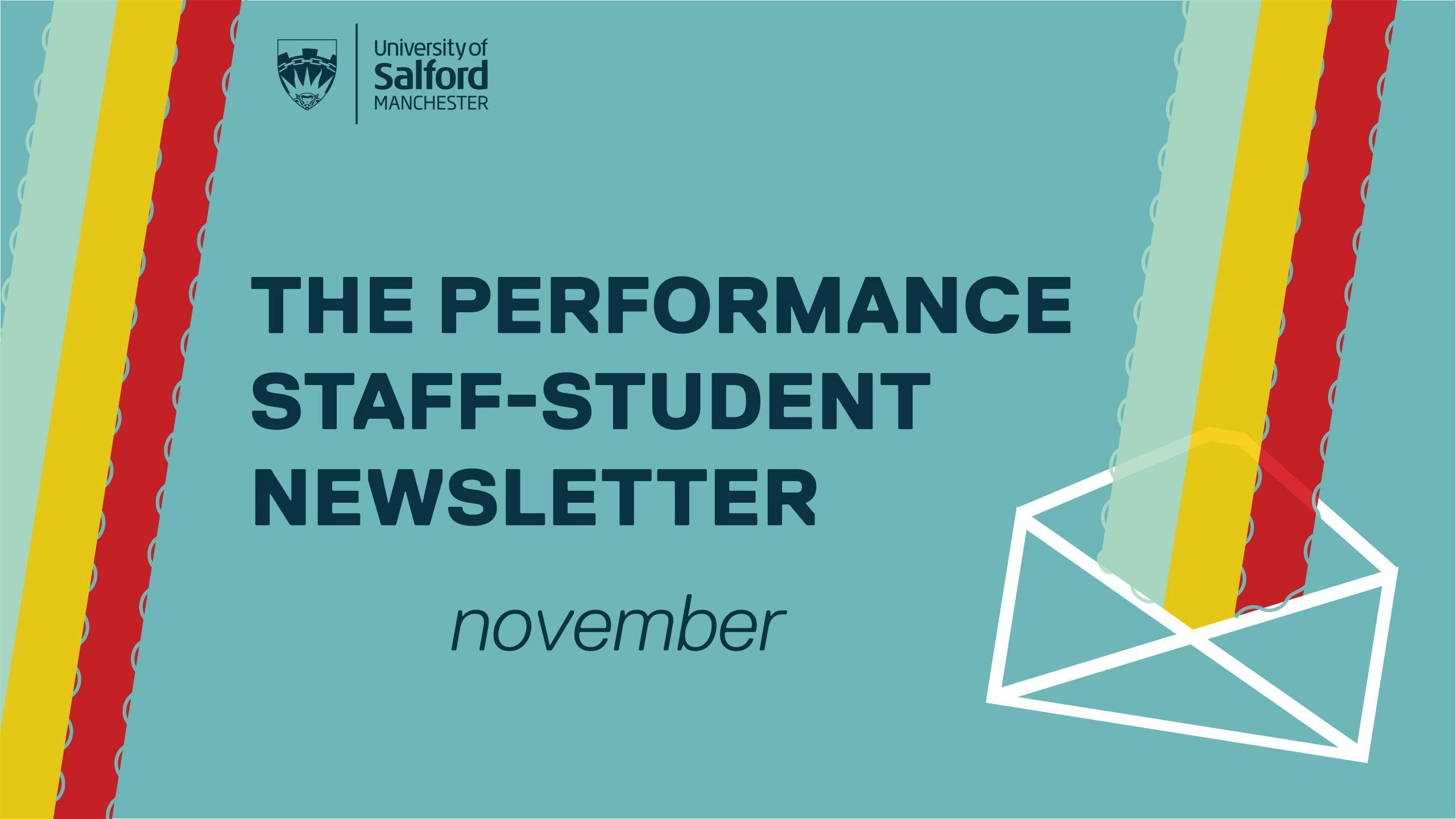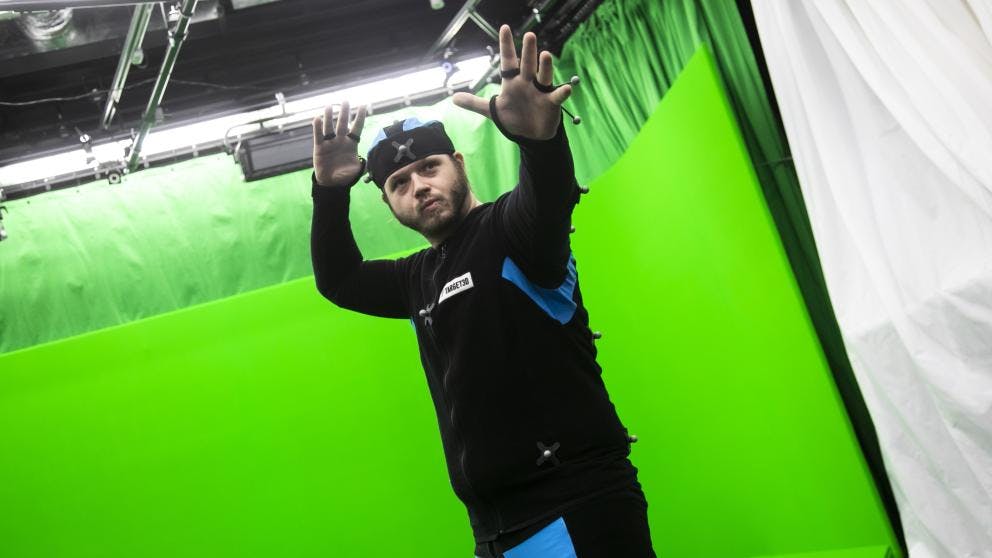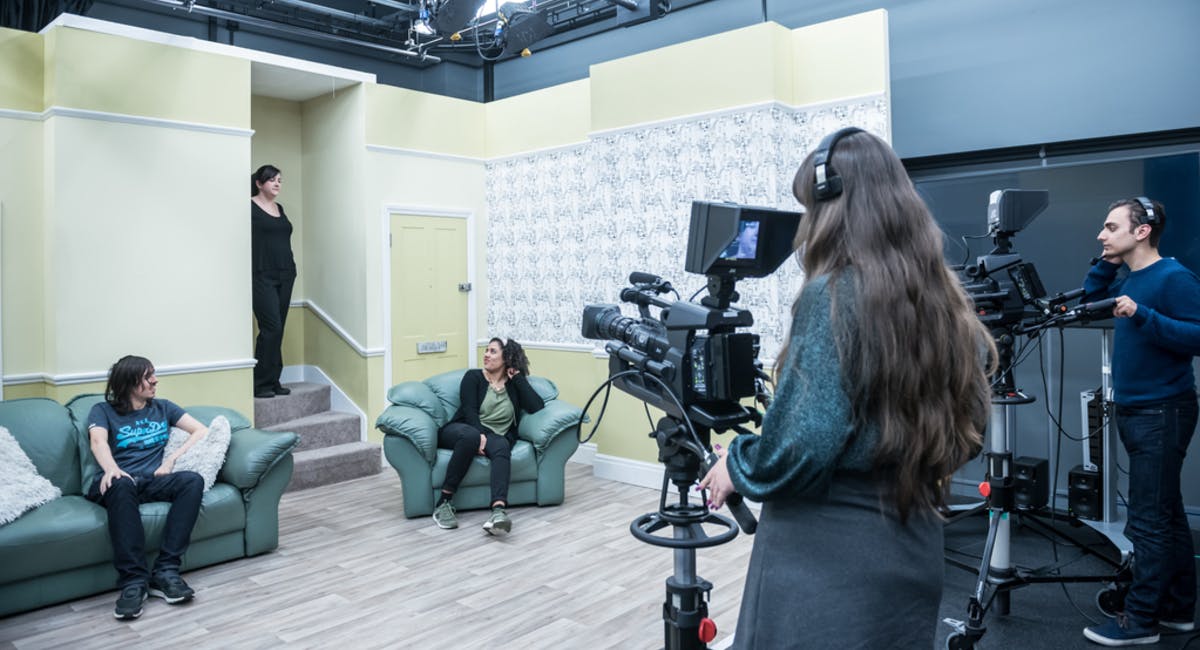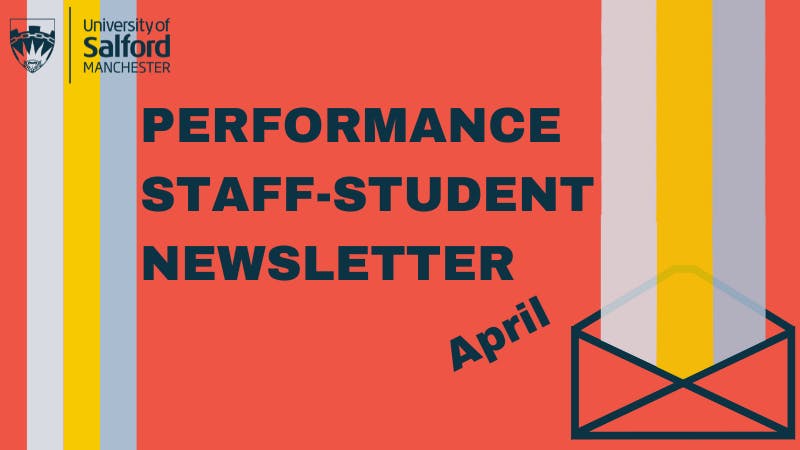
Hello, and welcome to the latest edition of the Staff/Student Newsletter!
Hope you all had a fabulous Easter break ready for the last few weeks of the trimester 2!
Excited to share lots of fun stuff that’s been happening since November in the Performance dept. We’ve had several Masterclass visits, Robyn tells us about Neil Bell, while Richard talks us through the visit from Stephen Tries. Some very interesting research projects going on at the moment, as well as a number of students currently out of the country on international exchanges. Also in our podcast section we hear from Grace McIntosh about her work on a new Channel 4 show.
We are always interested in what you’re up to, get in touch and let us know so we can feature you!
Take care,
Bron, Abby and Robyn 😊
Abby Bentham: A.A.Bentham@salford.ac.uk
Brainne Edge: B.Edge@salford.ac.uk
Robyn Misha: R.Misha@edu.salford.ac.uk

Wilkie Interviews Tom Short
By Wilkie
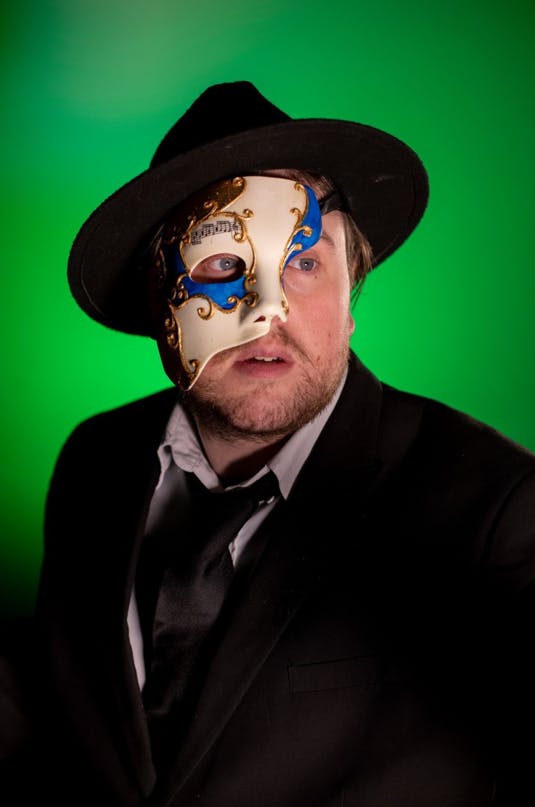
Tom Short is an award winning, professional, UK stand-up comedian. On his website (http://tomshortcomedy.com/) Short describes himself as ‘cut from a different cloth coming from Salford, being brought up working class and having meager (sic) beginnings in an environment that stamped out differences and creativity’. His style has been described as combining a ‘self-deprecating style and quick-fire delivery’. As well as being a ‘gigging comedian’, Short is also a documentarian of comedy, creating and uploading his own online archive of vlogs, reflections and interviews with other working comedians about the process of making effective live comedy. He recently toured his show Tom Short’s Wheel of Misfortune around the UK and will be taking his latest work, The Stand-Up Horror Show to the Edinburgh Festival Fringe in August 2023. Tom also has some unique perspectives on the interface between comedy and mental health.
IW: Tom, how would you describe yourself?
TS: As a comedian, I am moving towards doing comic performance that is harder to describe. What I try to do is to create ‘non-literate’ moments through the use of jeopardy and chance. This does make finding venues harder! I suppose ‘improv clowning in the guise of a solo comic performance’ is the best way to sum it up. By the way, I believe that absolutely everybody has the ability to be funny, but it is nice to get paid for it.
IW: When did you first decide that comedy was the thing for you?
TS: Well, I believe that it started as, ultimately, a defence mechanism. I went to a rough high school. Getting bullied as a teenager, I found I could show up a bully and make his friends laugh. This takes the power away from him. I then went to college and was still using humour as a defence mechanism even though it wasn’t a hostile environment. My first thought was that I made a joke that hurt someone’s feelings and I realised that I didn’t have to use humour in that way. I could have stopped ‘doing’ comedy then but there must have been something that kept me using it. But that was the point at which I transformed it from a defence mechanism to a social thing to make people feel better. I did a Comedy Degree at Salford University which taught me that everyone can be funny. When I left, I started off doing acting. I was not very good at it. I got a job in retail and I thought to myself ‘how can I be in some form of performance which doesn’t require so much time as acting does?’ Stand- up comedy was a way I could rehearse and write in my own time and do open mikes as they will let you have a go. I did ‘King Gong’ at the Comedy Store and died a horrific death. I was put off for a bit but still wanted to do it – in fact, the embarrassing first start was the ignition. There must be something in you that keeps wanting to do it despite perceived setbacks in your career and in your mental health. If people are drawn towards comic performance, they have that drive.
IW: What made you think you could do this? What gives you the confidence to do it?
TS: Subconsciously, I think it is a power thing. It is a way to subconsciously affect other peoples’ mindsets. For me it is a defence mechanism that I’ve turned into a healing mechanism for myself and other people.
IW: Where does your interest in comedy and mental health come from?
TS: I had a big breakdown about two years ago. It was rooted in low self-esteem and comedy both helps and hinders with low self-esteem. I’d had issues with negative thoughts, and something snapped. I felt I was not in control. Anxiety and low self-esteem are about wanting to control things. I reassessed how I was treating my own mental health and I was able to see that comedy does help my mental health. However, it was through doing an MA at university through academic study that I was able to join the dots between comic performing and comic mindset, especially with regards to incongruent mindset. For my own mental health well-being I was seeing a counsellor and through doing my own research I understood that comedy can help and hinder. Through grasping what it is doing for me and seeing what it is doing to me helps me to curb the negative aspects and to enhance the positives. Through my own life and professional experiences, if I can see then show that – then that could help other people in similar position.
IW: Tell me about your research into other comedians and their takes on mental health and comedy.
TS: My thought is that people are not as different as we think they are. Comedians are people of a similar mindset and I probe them about why they make their own choices. Is it to find out things about their own psyche? I interview them in the way that I’d hoped someone would talk to me.
IW: What discoveries have you made?
TS: One interview sticks out in which a stand-up comic participant told me that his sense of ‘look-at-me’ is a bit broken. It made me think that if there is a hole within us, that we are trying to fill that hole. There is a need for love, for someone who cares about you. Another interviewee told me that since he started comedy it has become a search for adrenalin that skyrocketed to the extent that he found himself indulging in risky behaviours when not onstage. These comedians showed me that comedy is a knife edge. The incongruent mindset that you have to have to be effective as a comic means that you can go down that dangerously introspective route if you are not careful. Even looking deeper into your psyche can become an addiction. In fact, addiction is something that consistently came up. Going down the rabbit hole. When I looked at where I was, my own actions were of an addictive nature in seeking a sense of validation and achievement. The risky behaviours are all linked to chasing the dopamine rush because you are missing something else in your life – maybe unconditional love. You need to be aware of your needs or it can all go the other way.
IW: Do you address issues of mental health within your stand-up act?
TS: I tend to not address it onstage. I think a comic is most effective when they are a neutral force onstage. Once you plant your flag in the ground it colours everything else that you do. For a ‘non-literate’ comic that causes problems. If I announce that I’ve got general anxiety it would be at the back of the audiences’ minds. That would colour everything. But for those who might want to dig any deeper, it’s all out there on my website. Anyway, without directly mentioning them, these issues will come through – they’ll bleed out – for example, my sense of nervousness is impossible to hide. It is not important in the moment. My creation of non-literate comic moments helps my own mental health and otherwise, to make it explicit, would be condescending to the audience.
IW: Do you do workshops using comedy?
TS: I find doing comedy workshops cathartic. I think comedy, like poetry, allows people to be able to be introspective and honest in their approach. There is no wrong. At Barking Tales in Manchester, they talked about mental health and said ‘if it’s not funny then it’s just a story’. The nature of comedy means you won’t be able to work through all of your issues. You have to decide as a comic whether you want to push that side of yourself. But if it stops being comedy and that’s not what the audience wanted, it’s the wrong medium. Doing comedy is cathartic up to a point. It is a flaw with the medium in that you are expected to be able to laugh at it or it is meant to be funny. But how far can you push it before it breaks?
IW: What of your future research and work with comedy, performance and mental health?
TS: There is something in the clown workshops that I have taken where two clowns find themselves in odd situations and have to work together to solve a small problem. As I said before it is a myth that you can’t teach funny. Everyone is funny, so it is something that can be used. You can give people extra tools, creative ideas and new formats to funnel their work. Because of the positive cathartic element, using basic comedy skills is particularly of use to people with a range of mental health and other forms of depression. Comedy helps you understand how you feel in yourself; the social aspect is valuable; getting through a comic problem is a way of being able to reframe perspectives. This all connects into a lot of cognitive behaviour therapies. Adopting an incongruent mindset helps you to reframe and retool.
IW: Any final thoughts about comedy and mental health?
TS: Well… In Hi-de-Hi [UK sitcom BBC: 1980–1988] the comic Ted Bovis used to say, ‘the first rule of comedy is reality’. Reality is important to the comic performer both on and offstage. You have to have a grasp of reality. Ideally, you have to have someone who gives you a reality check, as comedy can be your best friend or worst enemy. Keep a grasp, have something safe and trustworthy or someone else as an anchor to your reality. That will help you and stop you spiralling down…I don’t know, what’s the opposite of cathartic…I don’t know…harmful?
Change and Consequence Festival
By Kelli Zezulka
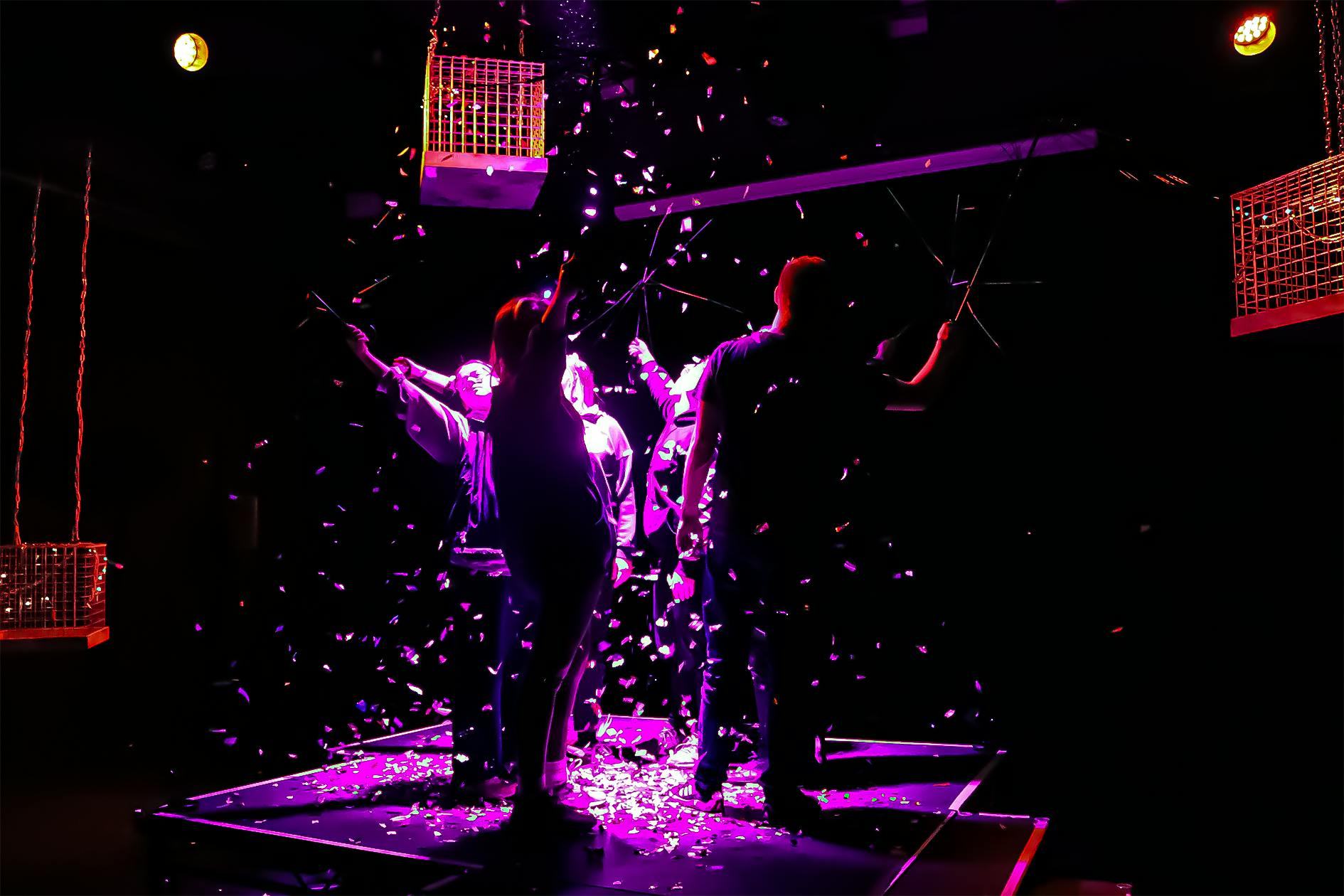
The third-year Technical Theatre students took over the New Adelphi building on 3 March to present a series of short plays and installations focused on the climate crisis. The design-led performances were based on plays from Lighting the Way: An Anthology of Short Plays about the Climate Crisis and have been all written and developed by the students, who were encouraged to be as sustainable as possible in their productions.
There were four very different plays that were presented:
- Ignorance (New Adelphi Theatre): An escape room with a twist, exploring the classic story of Little Red Riding Hood and how else the story could have ended.
- YourLife Presents: Singapore Spa (Rehearsal Room 1): A piece based around the concept of a spa day in an increasingly farcical (and warm) environment.
- Our Beautiful World (New Adelphi Studio): An immersive movement piece that looked at the beauty and destruction of the planet we call home.
- It Starts With Me (New Adelphi atrium): An audio-visual call to action, using the audience’s mobile phones.
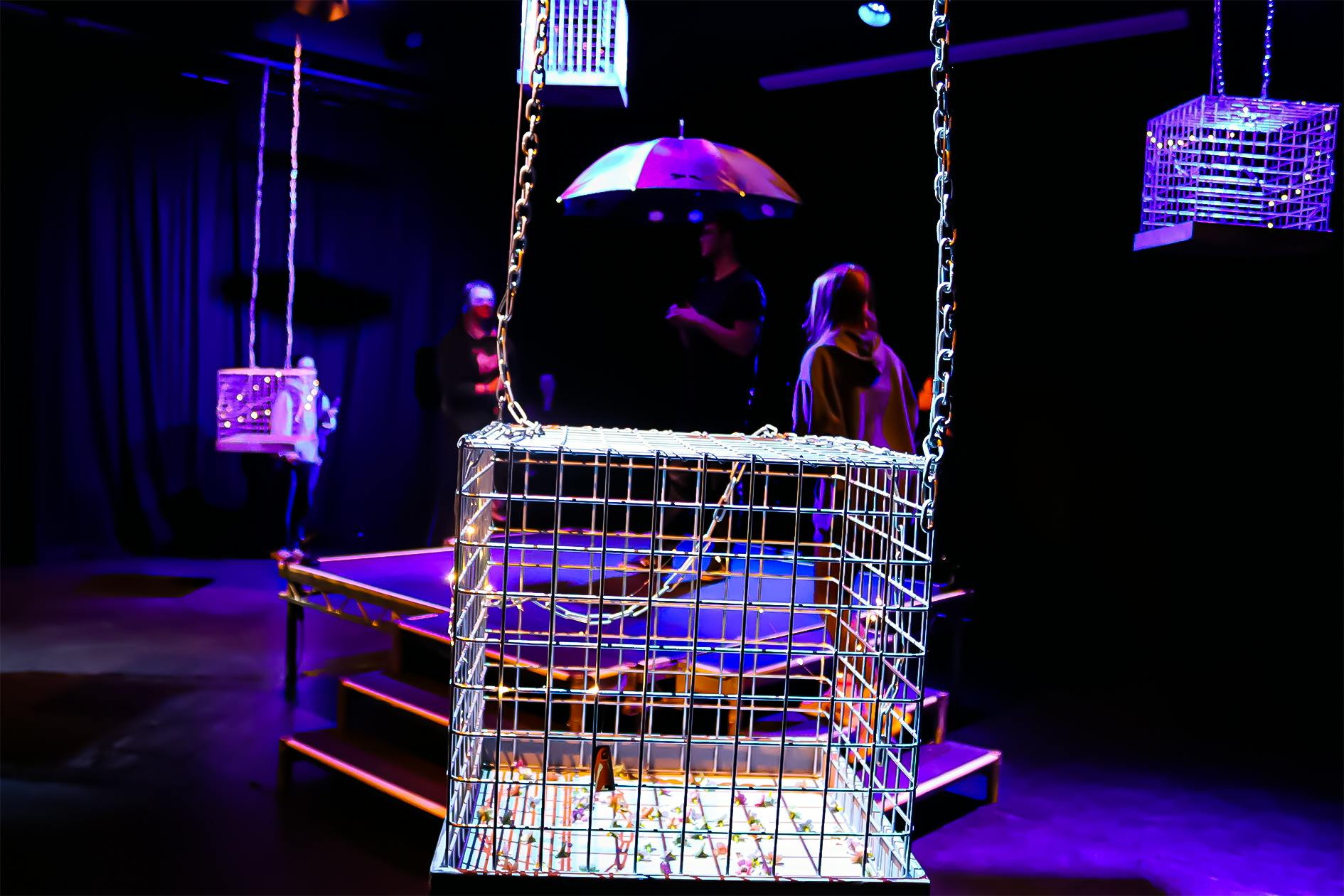
The festival was the first stage of our collaboration with Humber College in Toronto. Students in Humber have also been working on their own production from the anthology, which will be produced later this spring in Toronto. Next year, we are hoping to tour one or two productions from Salford to Toronto, with students working together virtually in the autumn and in person in the spring.
Industry Chat with Grace McIntosh from Channel 4’s
Dog Academy
By Brainne Edge
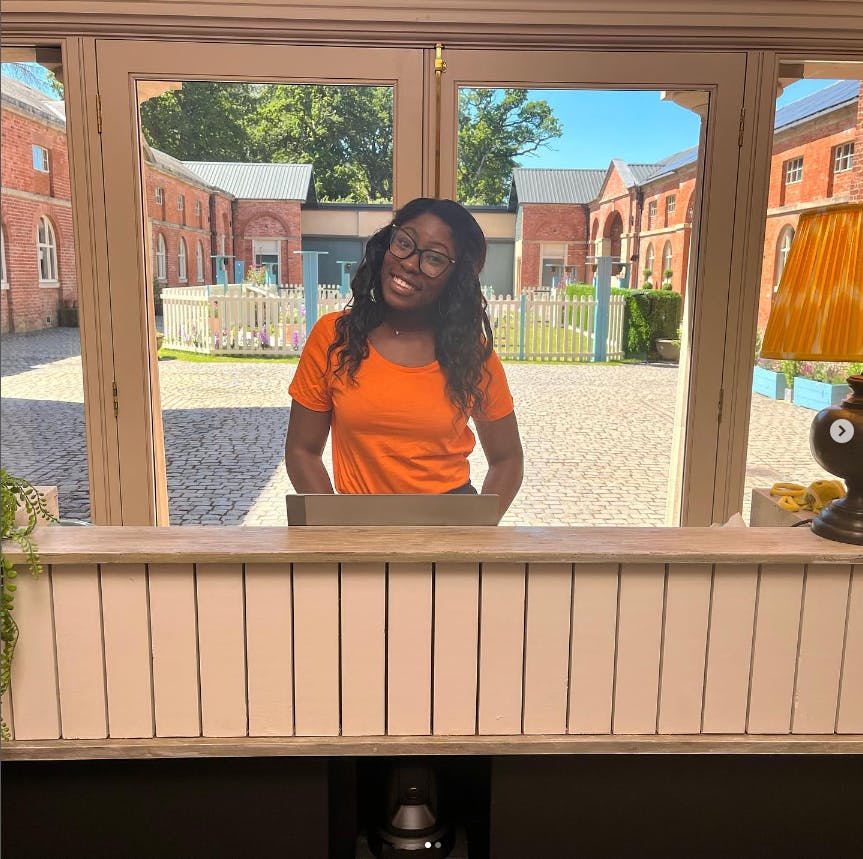
Listen to the podcast here!
https://spotify.link/cJEeH2xOoyb
Stephen Tries Returns: a Q&A with Stephen Lawson (Stephen tries Industries)
By Richard Talbot
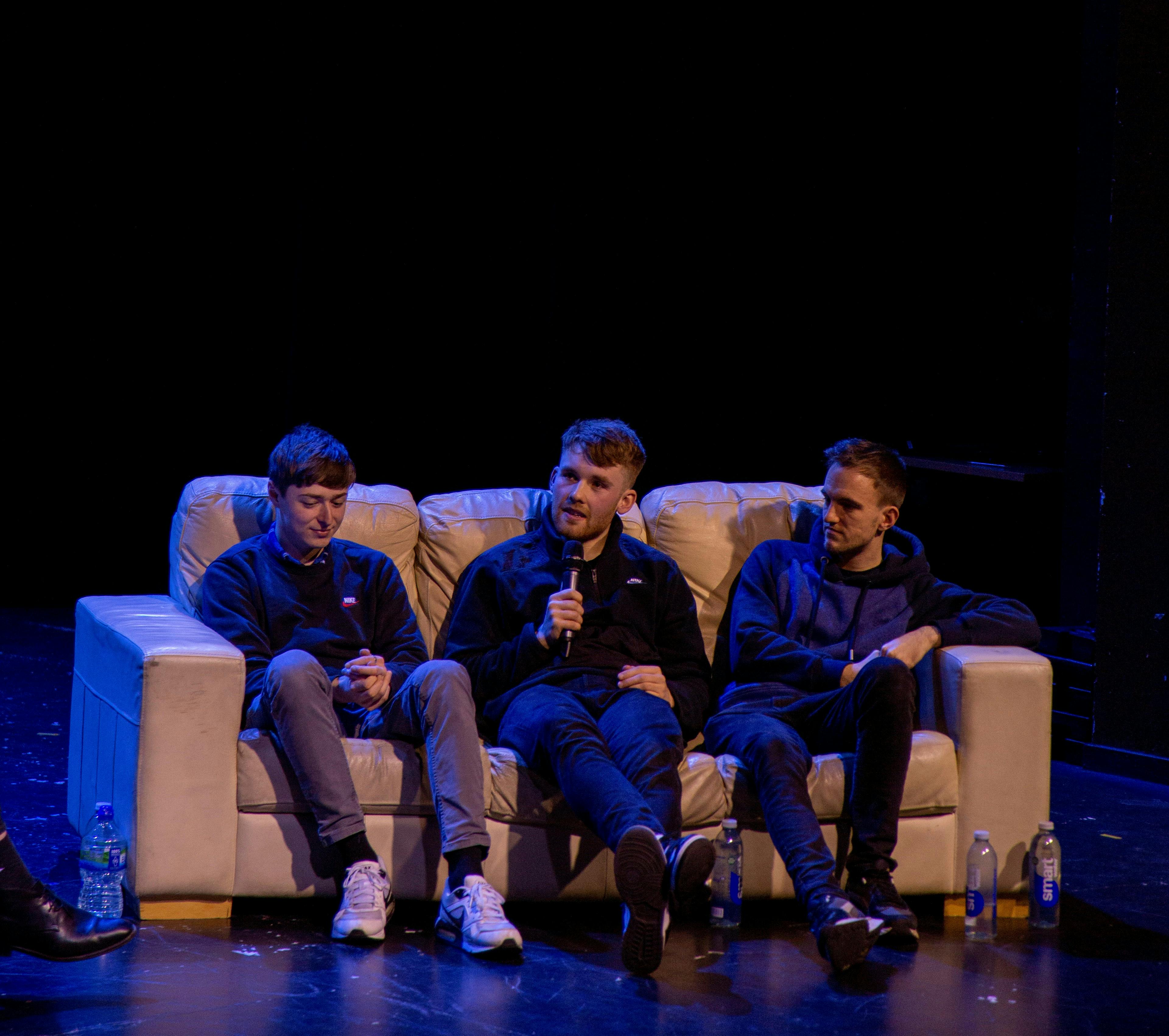
Stephen Lawson (Comedy Writing and Performance 2016) returned to the Robert Powell Theatre on 22nd March along with collaborators in the popular Stephen Tries YouTube Channel, Ryan Lock (Comedy Writing and Performance 2016) and James Ormrod (Comedy Writing and Performance 2021) for a Q&A with Comedy Writing and Performance Programme Leader, Dr Richard Talbot.
Stephen Tries has a YouTube following of 1.4M, and trades on the awkward lad persona, ‘Stephen’ created for the Grime parody How To Be Stormzy (2016). The small-town gangsta took a lead from Ali G, trading on the comedy of awkwardness and delusion, and Lawson pointed to other influences from the strain of self-deprecating, or should that be ‘self-destructive’ comedy, including Steve Coogan’s Alan Partridge. Where Alan and his generation of comedians have not quite caught onto the YouTube curve, Stephen Tries has been able to thrive on a hungry and ever-regenerating audience. Cultural faux pas by the nerd-hero Stephen has developed into sharp satire by a sharp-suited and opinionated presenter, and the relentless banter amongst Stephen’s mates provides a sense of twisted reality. Colourful and varied characters have been cleverly used by Lawson to present both performances within the genre and reaction videos about the genre. Stephen Tries is now a go-to channel to take the temperature not only of a certain brand of lad’s comedy but of the YouTube generation more widely. Lawson and Co.’s prolific output across sub-channels and platforms have spawned countless fans and it is very common for his name to come up in auditions and interviews for the Comedy degree.
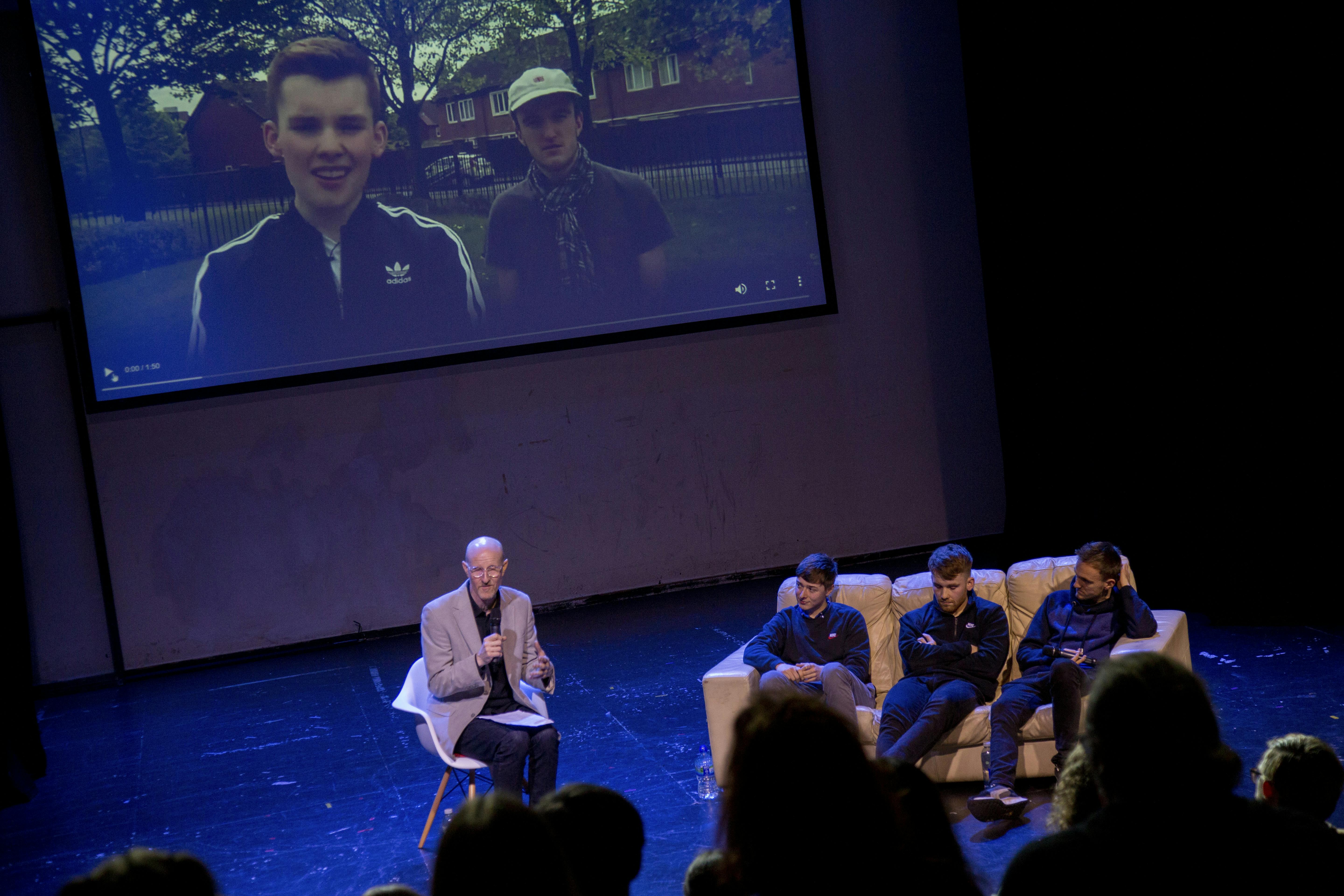
For the current Level 6 students of Comedy Writing and Performance, the conversation with Stephen Tries Industries gave an insight into how to keep pace with the rapidly growing format. One very direct question went straight to the issue of how much money a YouTuber makes from monetization. It can be lucrative, but Stephen says that the company are only just at the point where they are paying themselves and paying fees after running and production costs rather than expenses. Further income can be made form commission. Behind the scenes , Stephen has learned how to handle the ad hoc nature of ‘commissioning’ and sponsorship in the YouTuber ecology. Recently he was commissioned by Netflix to present Stephen Tries: Cunning Stunts (2022), in which he is the presenter as much as the hapless hubristic Stephen of ‘Stephen Tries’.
From 2023, a new module in Social Media Performance and Writing will offer students a chance to experiment with creating personae, podcasts, vines etc for YouTube, Instagram, Tik Tok and many more arenas. Stephen advised against being led by follower comments and ever-changing social media trends. He underlined the importance of staying true to your own ‘voice’ and style. He has used the persona to provide some consistency whilst working on improving the quality of his filmed output. A podcast that ran for 3 series in the Pandemic has been halted to allow the team to focus on sketches as well as a sitcom. The latest First Dates (2023) parody is a video with high production values and a long form that offers an insight into things to come.
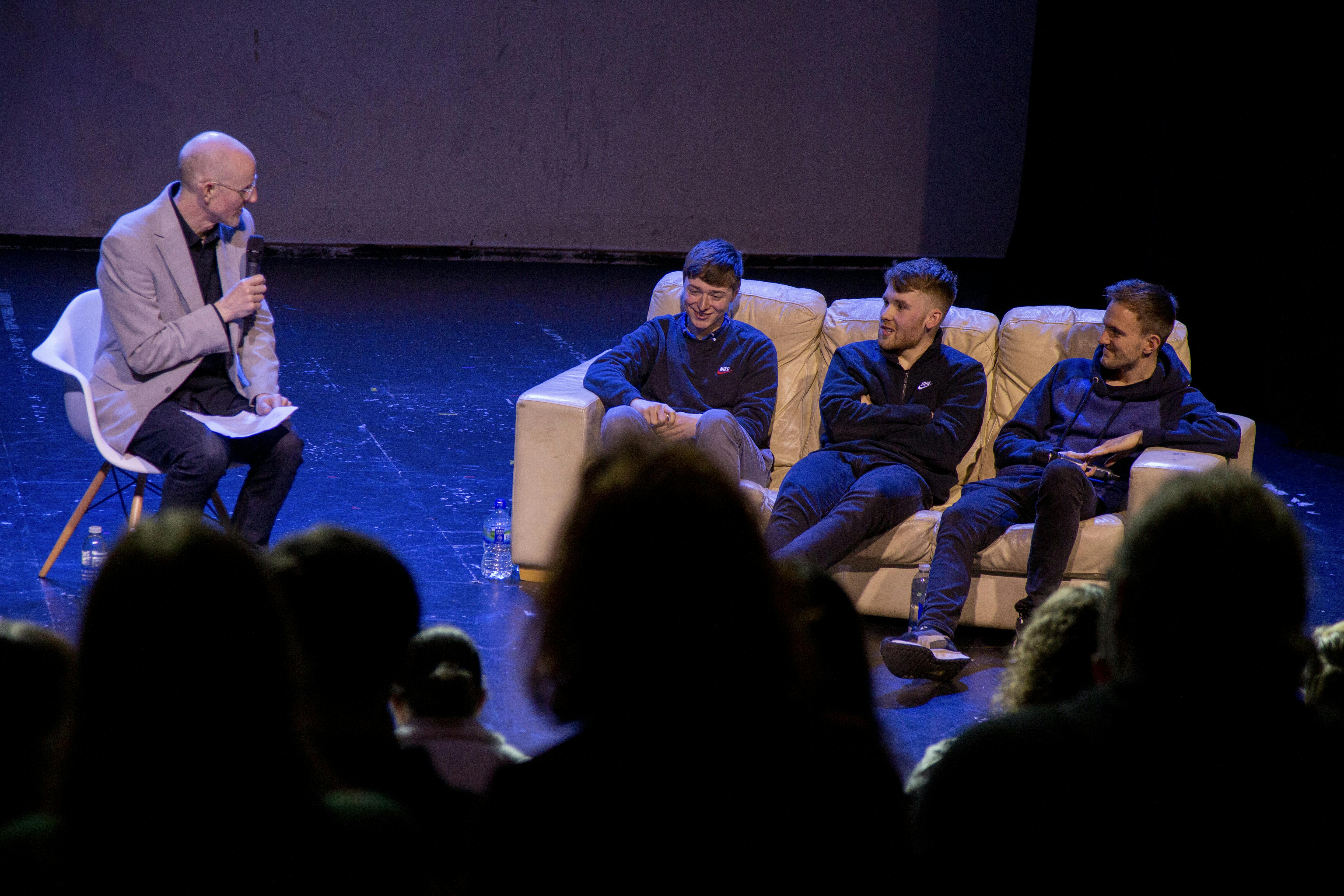
Fans’ comments frequently call for Stephen to appear on Taskmaster (Channel 4) and similar formats. Other mainstream TV channels panel and reality shows are appealing, Lawson agrees, but if they don’t work for the persona, they cannot be considered: again Lawson emphasised the need to imagine the persona and how he would survive in each of these contexts.
His collaborators agree that the Stephen Tries writing is ‘Stephen’s baby’ and Stephen explained the importance of having jokes as a driving force within any of the formats: from jokes to support the relentless mocking and deflation on the Podcast, to ribbing and undercutting more establish YouTuber guests in trending sketch formats, to the political targets of the annual ‘Roasting’ videos. Just when it seems that ‘everyone has a Podcast’, as Stephen said, the group have reached a stage when they can set up an office from which they can edit and present individual material, including for example the Twitch gaming commentary by Max Smith, who graduated from the same course the same year as Lawson. Lawson has brought many University of Salford Arts and Media graduates along with him – Tom Cooney, Tony Wright, Sam Blackhurst, and David Rees are among some of the regular guest performers. It seems like the ‘second channels’ and offshoots, Stephen Tries Again, Stephen Tries Less and are not stopping just yet. In fact we are going to be hearing a lot more in the future from Stephen Tries, More and More and More.
Show Me The Funny
This is the favourite joke of Ben Jukes, from CWAP L5

Two monkeys get into a bath. One monkey got in and say “oooh ooh ooh ahahhahh’… the second says ‘if it’s that hot, put some cold in it’…
Guess The Performer!
Can you identify this dynamic duo? Find the answer at the bottom of the newsletter!
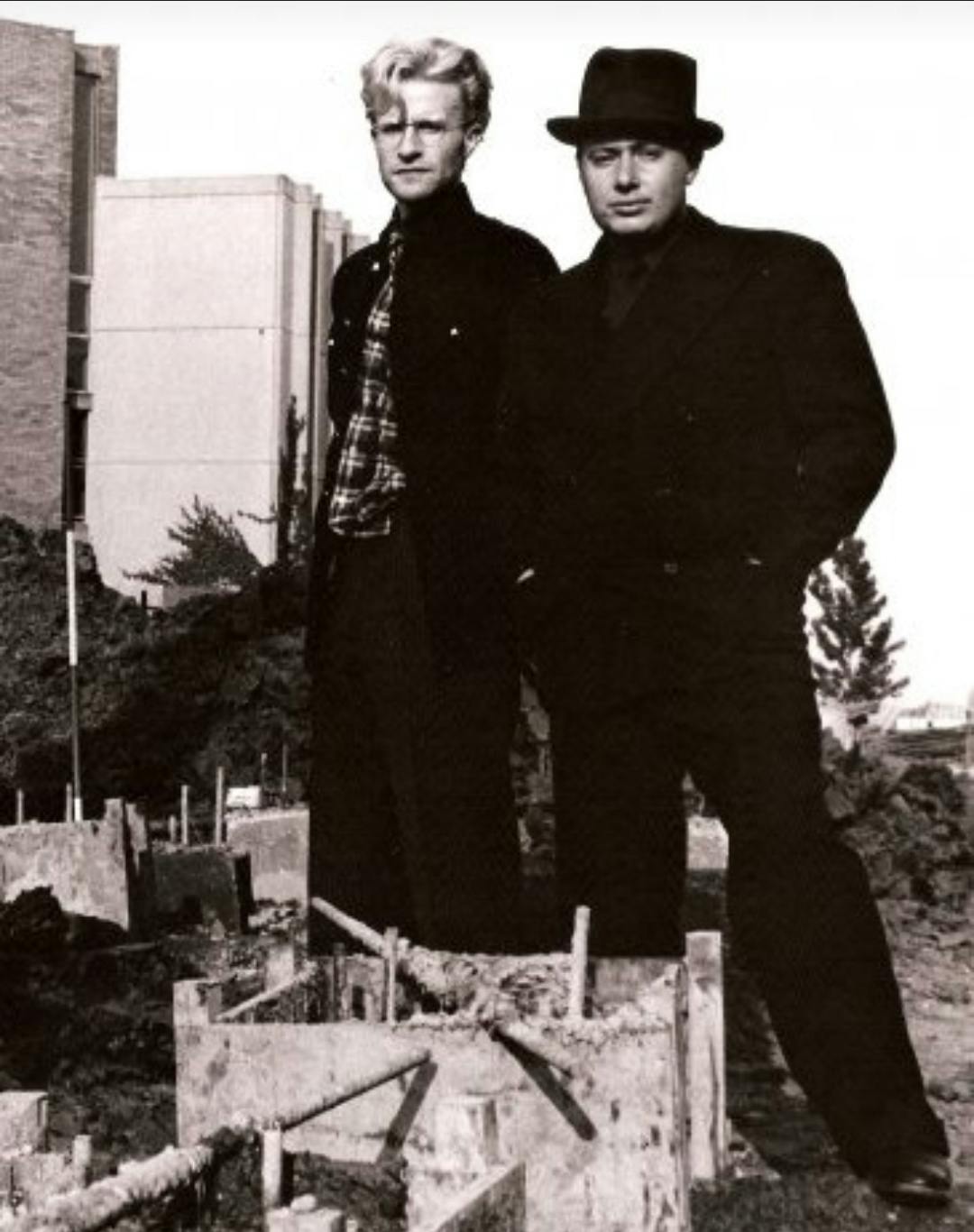

Lucy Burrows- Call The Midwife
by Lucy Burrows
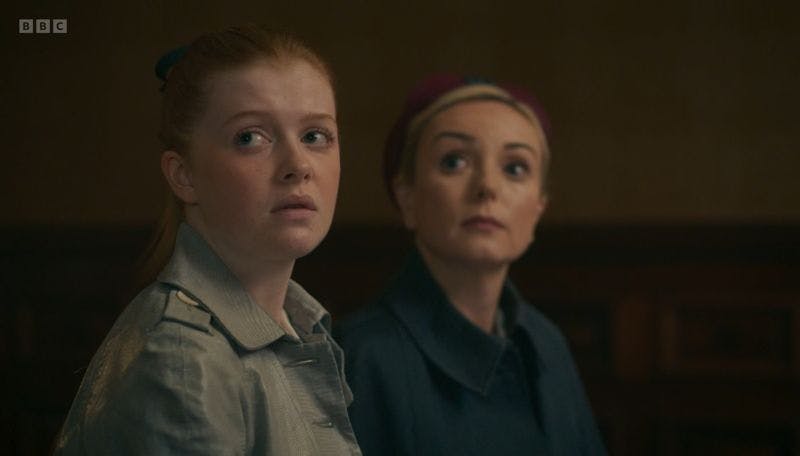
When I got an email from my agent with the subject line ‘Call The Midwife’, I was in shock. It was my first big audition – a show I had heard of, and which family were already invested in. I was so excited! I didn’t have long to prepare – I received the email on the Tuesday and had to reply by Friday of the same week. In addition, I had three scenes I needed to learn! I rehearsed with my Mum and we had a lot of laughs as we wrapped a teddy in a towel to pose as my baby!
As you can imagine, I was super anxious and spent a long time checking my phone for news. Soon, I got another email to say I had got a Zoom recall with Becca Wright, the Casting Director, and David Tucker, the Director. I was in a field at Reading Festival when I received the news, and it was so much fun to share the excitement with friends! When the day of the audition came around, I was super nervous as I hadn’t met a director connected to an established show before, and first impressions count. We had a little chat beforehand and David was so complimentary about my showreel. We went over the same scenes I had performed in my initial audition, and, at the end, Becca asked me for my measurements and stated they would be in touch soon. I booked the job the next day and I had a confirmation email soon after. I couldn’t believe it – I had gone from being introduced to the role and booked within a week!
I had a fitting the following Tuesday and was driven to the set in a company car. This was amazing! I was so relieved I had someone taking me to and from the set each day as I never wanted to be late, and it gave me two hours to go over my lines before shooting. It was great to see what happens behind the scenes – I tried on a belly bump for the first time and I had so many costumes! Later, Caroline, the Hair and Make-up Supervisor, gave me a trim and styled my hair, taking pictures and doing different styles for all the different scenes. This is when I learnt how much preparation goes into each episode. I also found I would have 2 bellies: one was a leotard with padding supplied by the costume department, the other was silicone and had to be pinned into place and stuffed with foam by two women from the make-up department. I must say, I will be waiting a while before I have kids because the pregnant look was not for me!
Working on the show was a fantastic experience – hopefully the first of many!
‘It’s Art, Jim, But Not as We Know It!’
By Dr Ian Wilkie
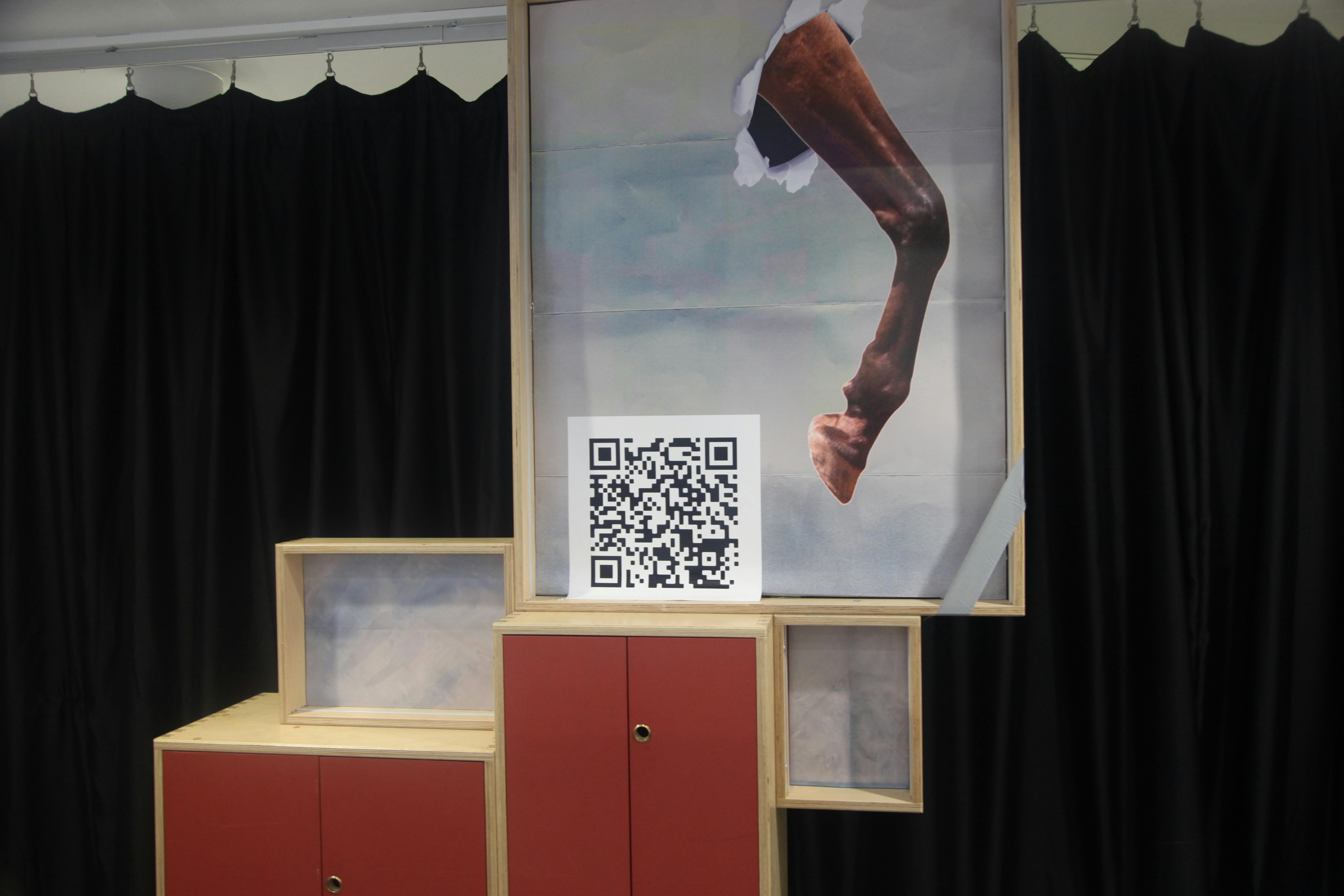
The UoS Comedy and Performance Art Project is gearing up for a Research seminar in May in which the results of its latest ‘Non-Event’ ‘Happenings’ will be shared and the latest Fluxus/Comedy inspired piece launched.
Staff, students and alumni alike have participated in the various occurrences inspired by the ongoing project over the past four years. The project aims to experiment with the points where comedy performance and performance art might share cause and effect. A website which archives the work is under construction and, once this is fully launched, is intended to be the springboard for a large-scale ‘Nonference’ in 2024-25. The Nonference will take the form of a symposium/forum/discussion/experimental space designed to allow attendees to rummage about in the debris of the collision between the practices of comedy and performance art that have been raised in the scope and work of the Project so far. 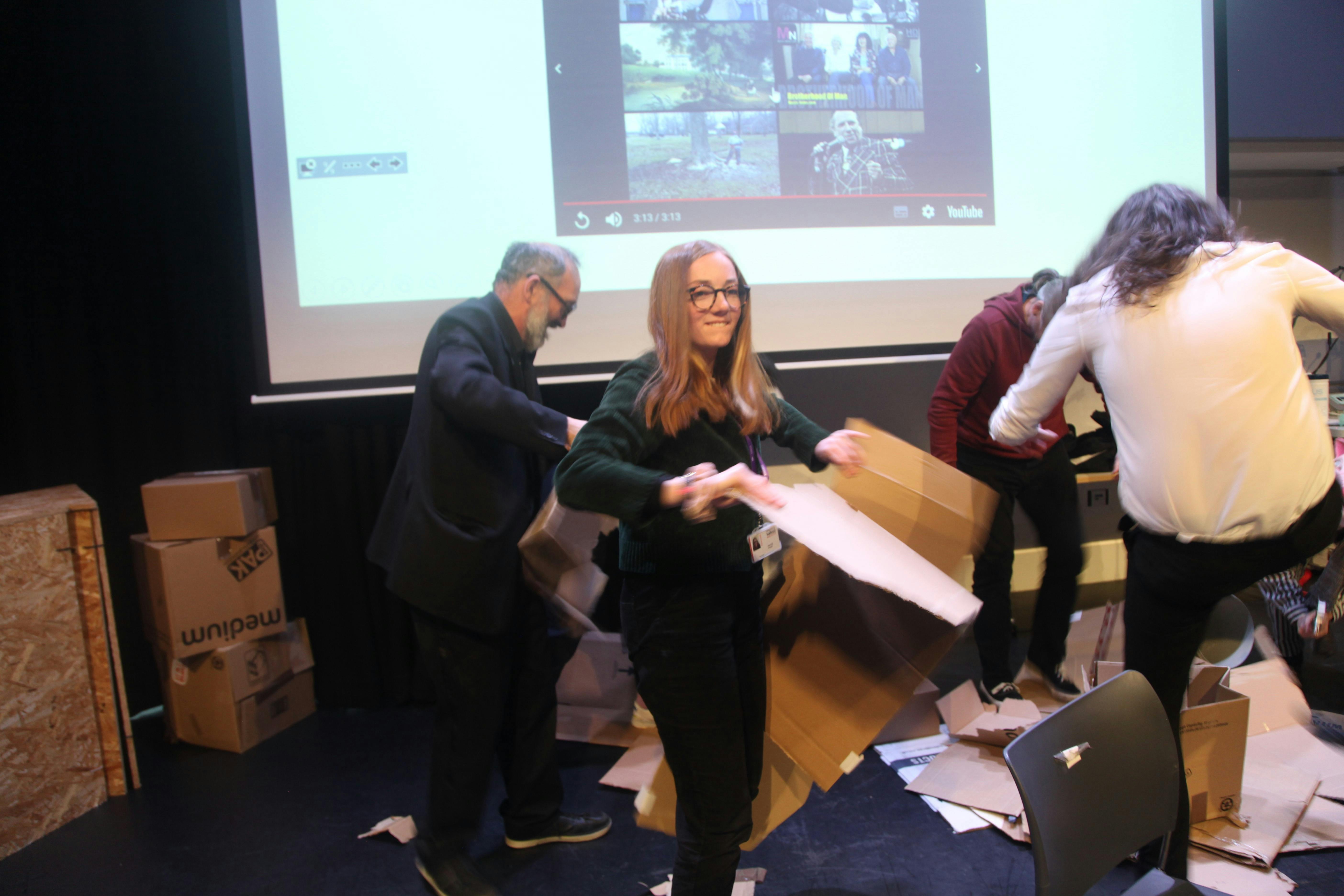 The last ‘happening’ took place on April Fool’s Day last year. The large-scale and riotous ‘Non-Event’ comprised a gallery, café, archive, and a live show – all held in the New Adelphi. The Big Non-Event’s pop-up café was run by Richard Talbot in his Kurt Zarniko persona, with Kurt, in turn, assuming the persona of Janine, a French café owner. The gallery, curated by postgraduate student and Festival of Research event collaborator, Adam Forbes, consisted of a fake archive of materials associated with a non-existent, dead, comedian, Frankie Russell. Other gallery exhibits included a model version of Marina Abramowić’s 2010 show The Artist is Present, entitled The Artist and her Puppet are Present, and a live re-enactment of Gilbert and George’s 1969 work Singing Sculpture. The performance event element that followed the gallery tour included an enactment of John Cage’s 1952 ‘silent’ piano piece 4 minutes 33 seconds, performed by Alan Williams, Professor of Collaborative Composition (with the carefully timed intrusion of a pantomime horse); a Dada-esque, avant-garde, noise and objects-based solo performance by a postgraduate student; and a formal interview with the non-existent abstract conceptualist artist ‘Luther Blissett’. Previous non-events have featured staff and students’ involvement in Dr Richard Talbot and Dr Ian Wilkie’s re-enactment of 1960s Fluxus Group sketches; the recorded staging of an absurdist meta-scene from N.F. Simpson’s 1959 play A Resounding Tinkle; a recreation of Joseph Beuys’ 1974 I Like America and America Likes Me with its live, interactive installation with a coyote; and an attempt at creating a spoof meme showing the experimental reversal of Damien Hirst’s recent non-destruction of his Non-Fungible Token Art.
The last ‘happening’ took place on April Fool’s Day last year. The large-scale and riotous ‘Non-Event’ comprised a gallery, café, archive, and a live show – all held in the New Adelphi. The Big Non-Event’s pop-up café was run by Richard Talbot in his Kurt Zarniko persona, with Kurt, in turn, assuming the persona of Janine, a French café owner. The gallery, curated by postgraduate student and Festival of Research event collaborator, Adam Forbes, consisted of a fake archive of materials associated with a non-existent, dead, comedian, Frankie Russell. Other gallery exhibits included a model version of Marina Abramowić’s 2010 show The Artist is Present, entitled The Artist and her Puppet are Present, and a live re-enactment of Gilbert and George’s 1969 work Singing Sculpture. The performance event element that followed the gallery tour included an enactment of John Cage’s 1952 ‘silent’ piano piece 4 minutes 33 seconds, performed by Alan Williams, Professor of Collaborative Composition (with the carefully timed intrusion of a pantomime horse); a Dada-esque, avant-garde, noise and objects-based solo performance by a postgraduate student; and a formal interview with the non-existent abstract conceptualist artist ‘Luther Blissett’. Previous non-events have featured staff and students’ involvement in Dr Richard Talbot and Dr Ian Wilkie’s re-enactment of 1960s Fluxus Group sketches; the recorded staging of an absurdist meta-scene from N.F. Simpson’s 1959 play A Resounding Tinkle; a recreation of Joseph Beuys’ 1974 I Like America and America Likes Me with its live, interactive installation with a coyote; and an attempt at creating a spoof meme showing the experimental reversal of Damien Hirst’s recent non-destruction of his Non-Fungible Token Art. 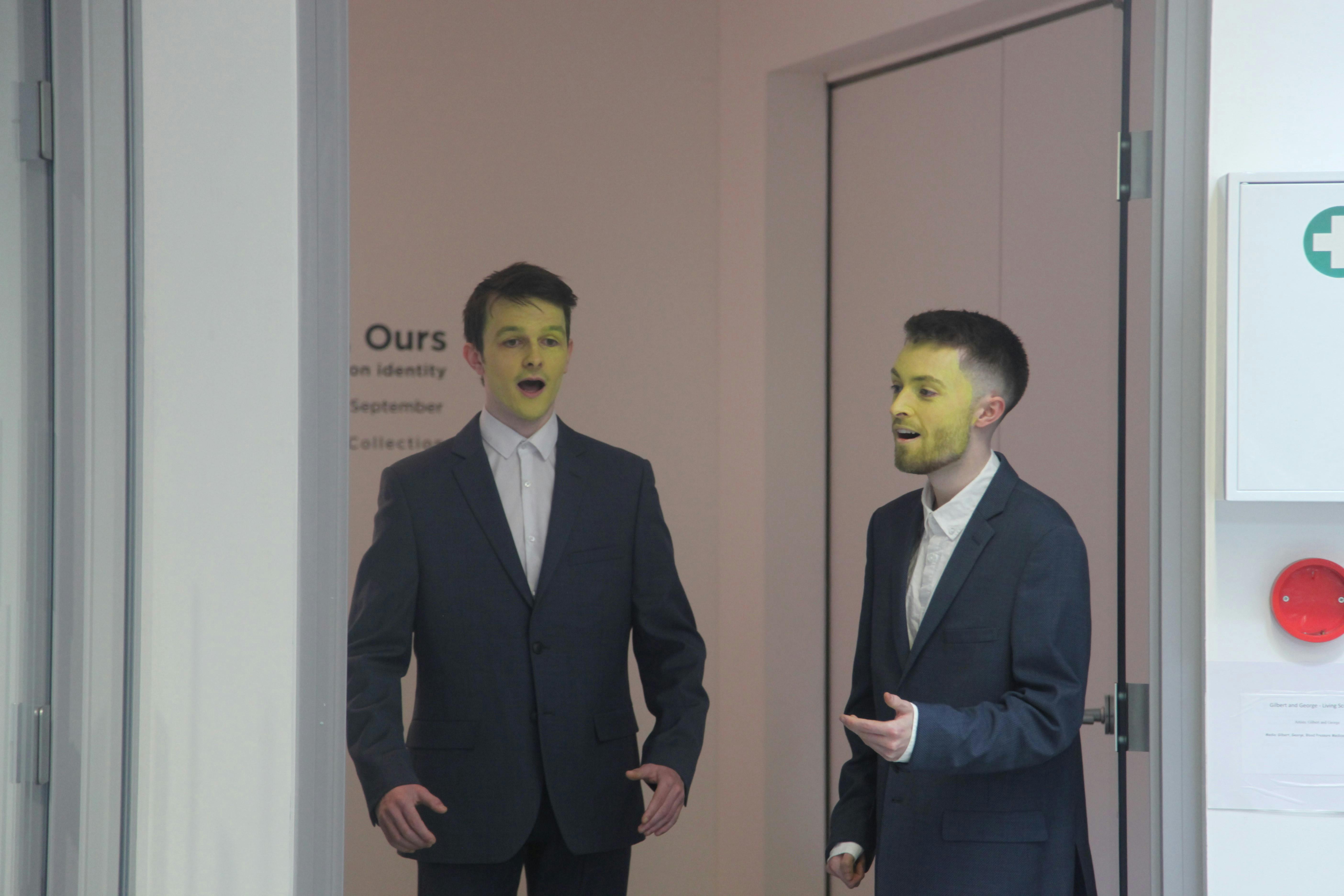
Details of the Project so far will appear as an article in the forthcoming issue of Comedy Studies (Vol 14: 2, Winter 2023 edition) entitled 37 Funny Fragments: The UoS Comedy and Performance Art Project Assemblage.
Below are some images from the 2022 big Non-event which comprised a pop-up cafe, gallery, and a Fluxus-style cabaret, held in the New Adelphi on 1st April.
- Publicity for The Big Non-Event (c) Hannah Briggs 2022
- Students and staff destroy the home-made piano (c) Hannah Briggs 2022
- Students Josh Omri and Joe Brady recreate Gilbert and George’s Singing Sculpture (c) Hannah Briggs 2022
Lucy Ryan Team GB and Sky Dive
By Lucy Ryan

Lucy Ryan is a Level 4 mature student, studying Theatre and Performance Practice. In April 1993, at just 3 years old, she received a life-saving heart transplant. Now, as she marks the 30th anniversary of her transplant, Lucy reflects on how the selfless act of her donor’s family has allowed her to live a rich and fulfilling life, filled with amazing opportunities:
“I was only able to live beyond the age of three years-old thanks to my donor, my family and the incredible team at Great Ormond Street. I was able to start school like everyone else aged four years-old and lead a fairly normal life, despite regular routine trips for heart check-ups. Having a transplant certainly makes me aware of how precious and short life is, and how important it is to live life to the full and make the most of any opportunities offered to you.
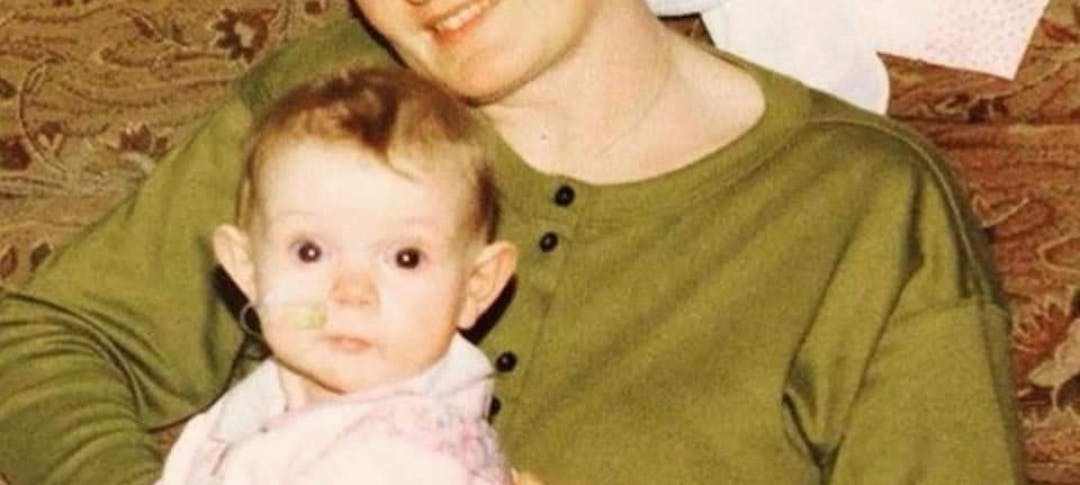
If you are well enough post-transplant, you are welcome to compete in the annual British Transplant Games. At the British Transplant Games, it genuinely is the taking part that counts as some people were unable to walk 10 metres pre-transplant, therefore the fact they can now sprint 100m in some cases seems like a miracle! It is a brilliant event for showcasing the benefits of transplantation. I participated in my first British Transplant Games in 1994 just over a year post-transplant, competing for my hospital, Great Ormond Street. I now compete for Royal Papworth Hospital where I receive my adult post-transplant care. Every year this event is held in a different city throughout Great Britain. You can take part in a diverse range of sports including athletics, bowling, swimming, and darts. If you achieve certain times/distances you can be selected to compete for Team GB in the bi-annual World Transplant Games.
Following my results competing in Leeds last summer, I was selected to join Team GB for the World Transplant Games which were held in Australia, from 15th-21st April this year. Team GB was 120 competitors strong and we were up against more than sixty other countries competing in seventeen different sporting events to try and bring some bling back home. It also happened to be my 30th Heart Transplant Anniversary whilst we were out there – what better way to mark the anniversary than by representing Great Britain on an international scale and raising awareness of organ and tissue donation?

The World Transplant Games work in partnership with the charity Transplant Sport, and without the support of their volunteers, these games would simply not be possible.
However, competitors receive no funding to attend the games and competing in Australia is not cheap. The estimated cost per person was £4,000 (accommodation, registration, kit costs, training, flights, etc.). For competitors like myself who are full-time students, raising this kind of sum is no mean feat. I set up a fundraising page and was fortunate enough to receive some sponsorship from businesses. To raise further awareness of Organ & Tissue donation and the final £2,000 I decided to do a 10,000ft Skydive on Saturday 4th March. I was terrified about this as I do not like heights! I would be freefalling for thirty seconds, which is one second for every extra year of life I have had thanks to my lifesaving transplant. Unfortunately, the weather was too bad for the Skydive to go ahead, so it has been rescheduled for Sunday 30th April.

Although we now have the Opt Out system in place in England, which means that organs will be considered for donation unless the individual has registered their wish to opt out, it is still important to share your wishes with your next of kin. The sad reality is that many donors die in sudden, unexpected circumstances, and if your loved ones know your views on organ and tissue donation I can make a difficult time a little easier for them. To find out more about becoming a donor and to sign up to the organ and tissue donor register, please visit the link below: https://www.organdonation.nhs.uk/
Thank you,
Lucy x
EDITOR’S UPDATE: Lucy was able to exceed her fundraising target and bring home some Team GB bling! The excess funds raised will be donated to the charity Transplant Sport that make the British, European & World Transplant Games possible. If you’d like to donate towards this worthy cause, please visit: https://www.gofundme.com/f/me-compete-in-the-world-transplant-games-2023
Abby Bentham- Evil Women: Women and Evil
By Dr Abby Bentham
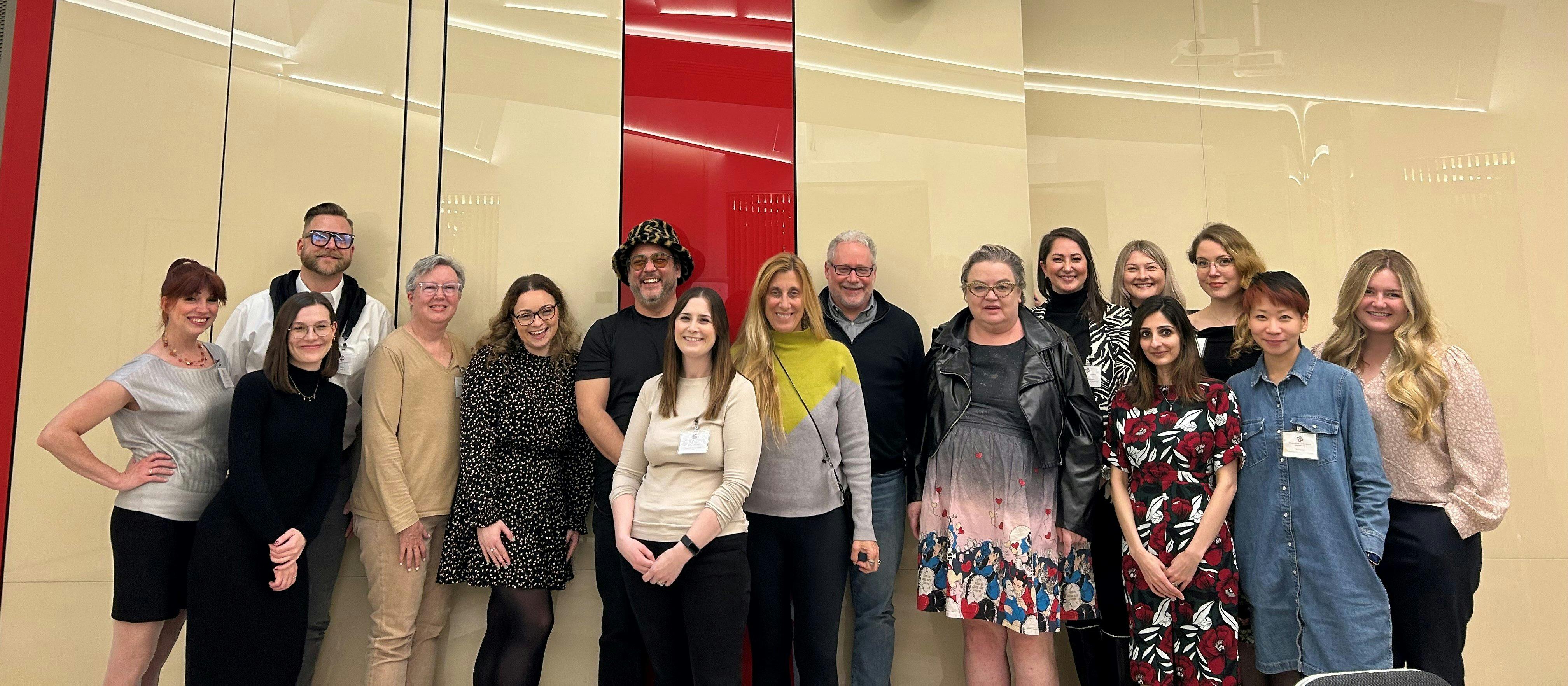
Dr Abby Bentham took the helm again this March, at the 4th Global Conference exploring the ever-popular topic of Evil Women: Women and Evil. The global, interdisciplinary conference, which was held in Prague, Czech Republic, brought together scholars, artists, professionals, and practitioners from around the world.
Few things capture the human imagination as much as evil, a notoriously slippery concept that enjoys universal recognition yet defies easy definition. As a term which is frequently used in relation to people who commit appalling crimes, it provides a useful means of describing unimaginable wickedness and is bandied about in popular culture as a way of explaining behaviours which defy belief. Yet the term ‘evil’ is also used as a way of controlling, punishing, ‘othering’, and defining people who, in some way, confound or subvert patriarchal expectations of women and the feminine. At the conference, twenty speakers from countries including Australia, Taiwan, India, Canada, the USA, the UK, Greece, and Germany explored the various conjunctions between evil, women, and the feminine, from the full range of disciplinary, professional, and social perspectives. The event, which everyone agreed was a roaring success, looked at topics as diverse as vampire facials, murder ballads, fairy tales, Asian female ghosts, body transformation, and true crime marionette theatre. It also included performance poetry and original photography.
The last in-person meeting of Evil Women: Women and Evil took place in December 2019, just before COVID-19 gripped the world. The conversations that took place at the event were later developed into an interdisciplinary collection of essays entitled Divergent Women: Interdisciplinary Perspectives on Female Deviance and Dissent. The collection, co-edited by Abby and Berlin-based scholar Lorraine Rumson, was published by Emerald in November 2022. It puts forth a dialogic discussion of how non-conforming women are coded as ‘evil’, and asks: what happens when women choose to be divergent?
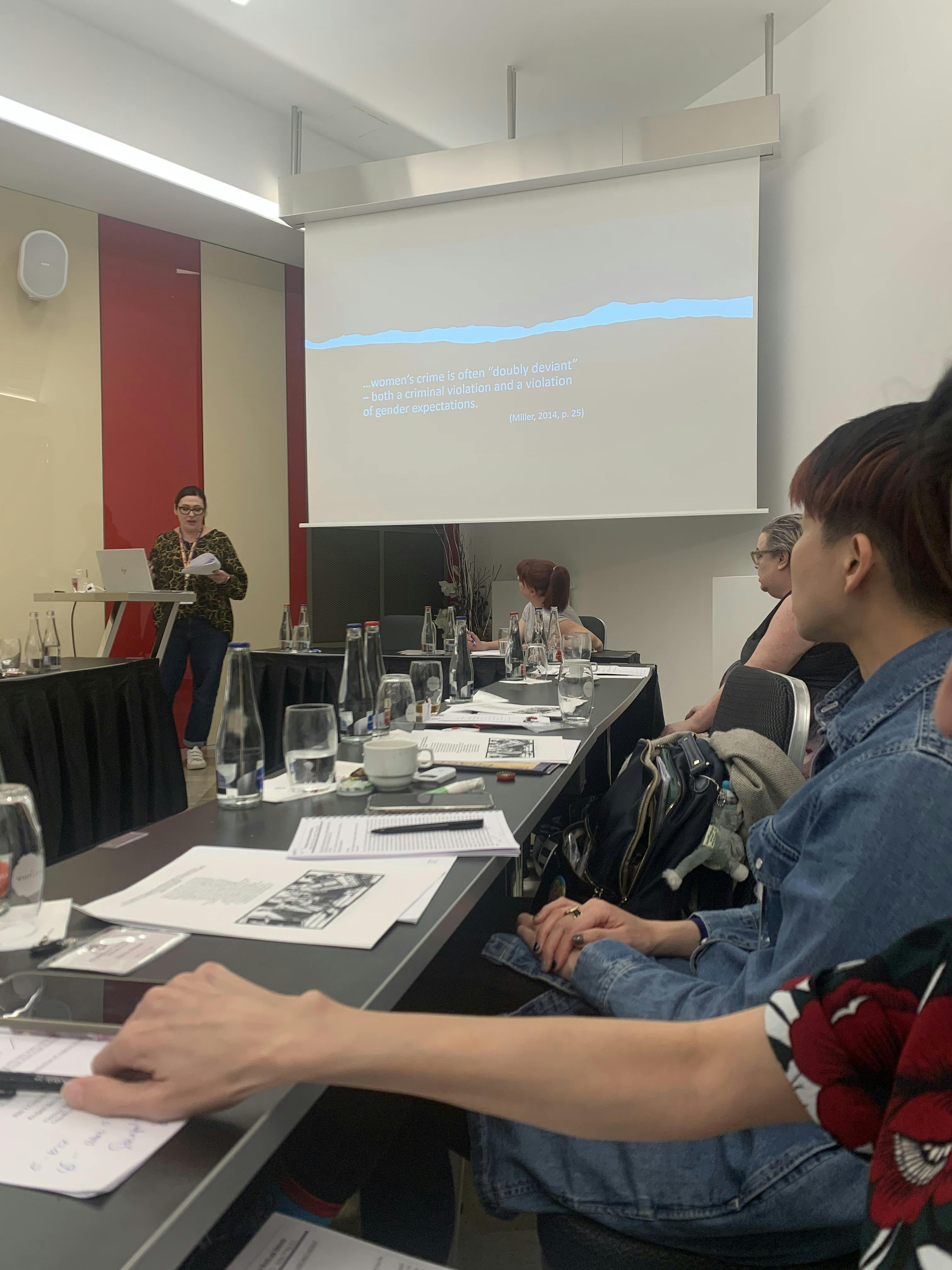
Delving into reflective and auto-ethnographic perspectives which explore subjective responses to the influence of the representation and treatment of evil women, Divergent Women* is ultimately a celebratory reclamation of the concept of feminine transgression. Featuring perspectives from North Korea to Victorian England, from Biblical to digital narratives, this boundary-breaking text demonstrates that divergent women have complex inner lives, agencies, and a unique ability to inspire other women to resist social sanctions. Encompassing global perspectives and bringing together artistic and academic work, the collection invites readers to explore the possibilities for divergence that exist under the label of womanhood.
Abby is now looking forward to working on an edited collection emanating from the conversations generated at Evil Women: Women and Evil 4 – watch this space!
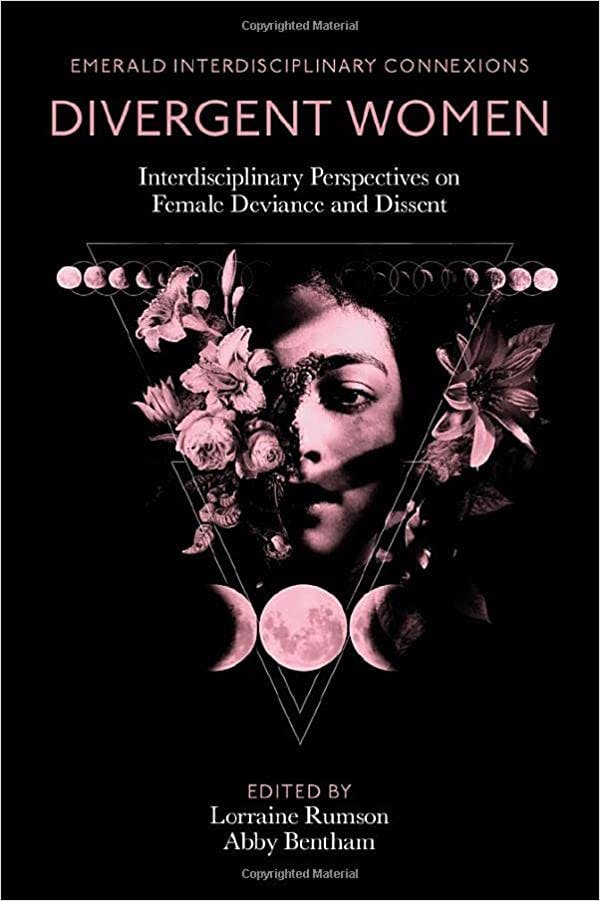
* The e-book of Divergent Women: Interdisciplinary Perspectives on Female Deviance and Dissent is available from the Clifford Whitworth Library.
Kelli Zezulka’s New Book Shines a Light on Performance Lighting
By Dr Abby Bentham
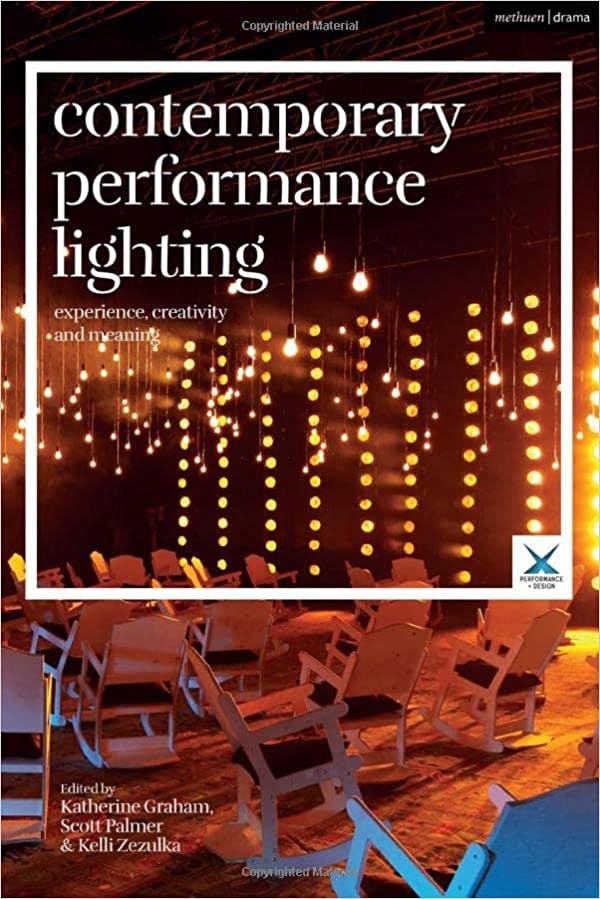
Contemporary Performance Lighting: Experience, Creativity and Meaning edited by Katherine Graham (University of York), Scott Palmer (University of Leeds) and Kelli Zezulka (University of Salford) was published by Bloomsbury Methuen, in February this year. This volume forms part of the prestigious Performance + Design series (series editors Scott Palmer, Joslin McKinney and Stephen Di Benedetto) and is the first critical anthology focused on performance lighting in the English language.
This is the first major collection of critical responses to performance lighting and includes contributions from award-winning lighting designers, researchers and artists. Showcasing recent examples of work – with case studies of lighting practices in Britain, Europe, the US and China – combined with theoretical and analytical approaches to practice, this will enrich readers’ understanding of the role and potential of light in performance and related creative practices.
This volume explores three core themes and provides a framework for thinking through the role of light in performance:
1. Experience – considers both the audience’s experience of light and the ways in which light influences the experience of performers
2. Creativity – examines both the creative, performative capacities of light in performance, as well as the creative practices of lighting designers
3. Meaning – offers an expanded view of performance aesthetics by examining the capacity of light to influence and generate meaning within performance.
The case studies are drawn from a wide array of lighting practice, including: Jennifer Tipton on the role of light as a structural language in performance; Jesper Kongshaug on the lighting of Copenhagen’s Tivoli Gardens; Lucy Carter on her work in installation and dance; Psyche Chui on the productive fusion of Western lighting techniques with contemporary Chinese opera; Katharine Williams on the role of light in feminist political theatre made by RashDash; and Paule Constable on storytelling with light in a range of productions, including War Horse, The Curious Incident of the Dog in the Night Time and Angels in America.
ROBYN REFLECTS ON NEIL BELL VISIT
By Robyn Misha
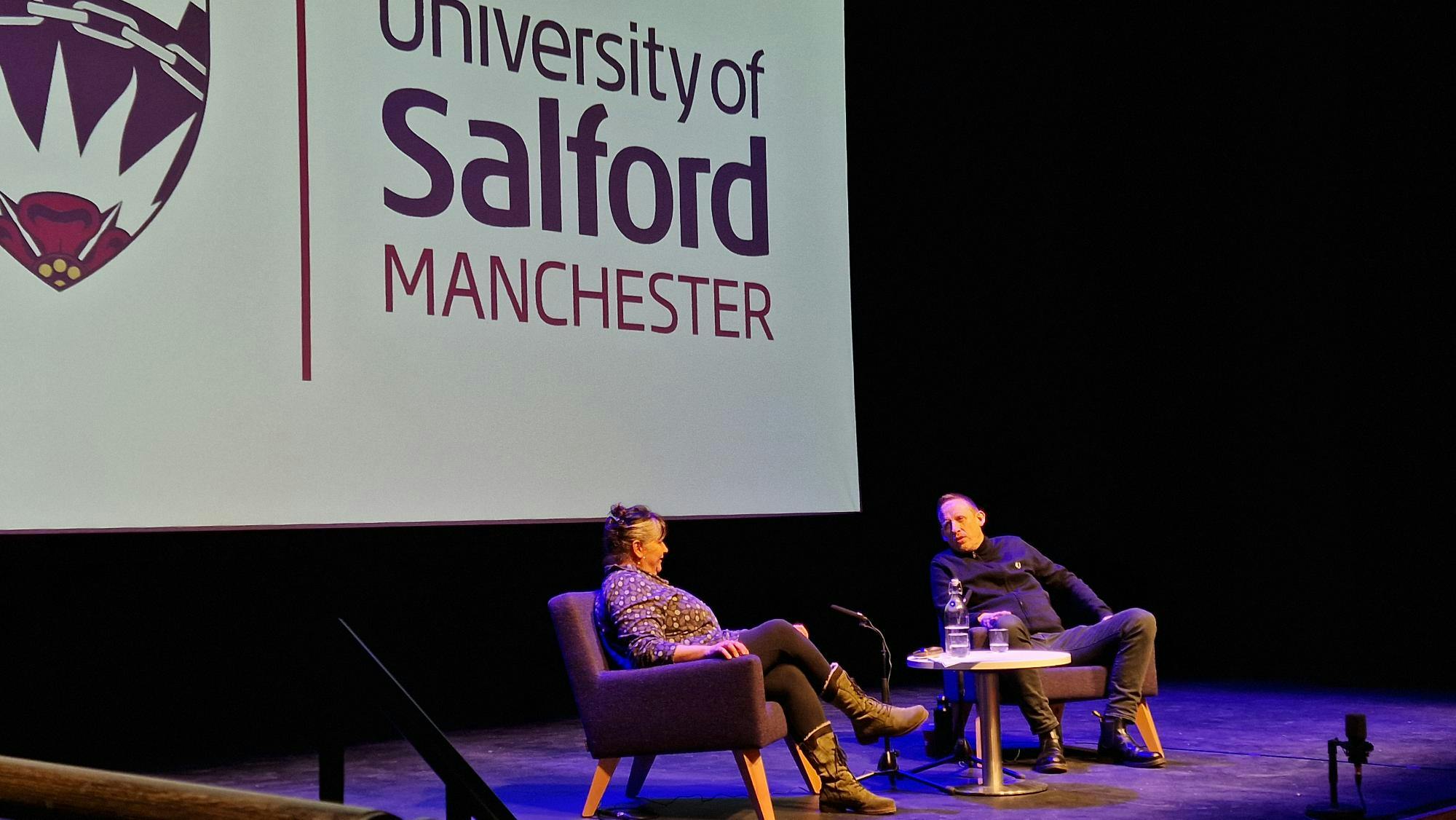
This trimester, performance students were invited to a talk with Neil Bell, where he spoke about his work in the acting industry, from anecdotes of working with specific directors, to tips for auditions and self-tapes. Neil Bell is a local actor, born and raised in Oldham situated on the outskirts of Greater Manchester. He trained for the theatre in Oldham and touched on his time there during his talk, mentioning Oldham Coliseum Theatre and Oldham Theatre Workshop. Oldham was once a prime location for theatre in northern England, however, in recent years the town’s relevance has diminished due to the pandemic and theatre closures due to funding. Bell has been seen in many big screen movies and tv shows such as Dead Man’s Shoes, Dune, and Enola Holmes, but also the local story Peterloo. He has played a large range of roles and, as an actor, has performed each with great quality and creates an entertaining and complex performance.
It was clear that the students that attended this talk found his advice insightful, with many people asking questions at the Q&A section and Bell was happy to entertain our students questions and provide them with individual advice and general advice regarding that question to target the whole group. He provided the students with anecdotes from auditions, working with directors and the struggles he has faced and how he overcame them. His devotion and passion about his craft was a great model for what our students should strive to be, and I know that I have took a lot from his talk that I have carried with me in my current work in industry.
I speak for the students at Salford when I say we are incredibly thankful for Neil’s generosity to speak with us and provide us with useful information about the industry.
We cannot wait to see where your work leads you in the future, and hopefully, if we try hard enough, we might share the stage or screen with you someday.
Sean Scoops Student Led Teaching Award
By Brainne Edge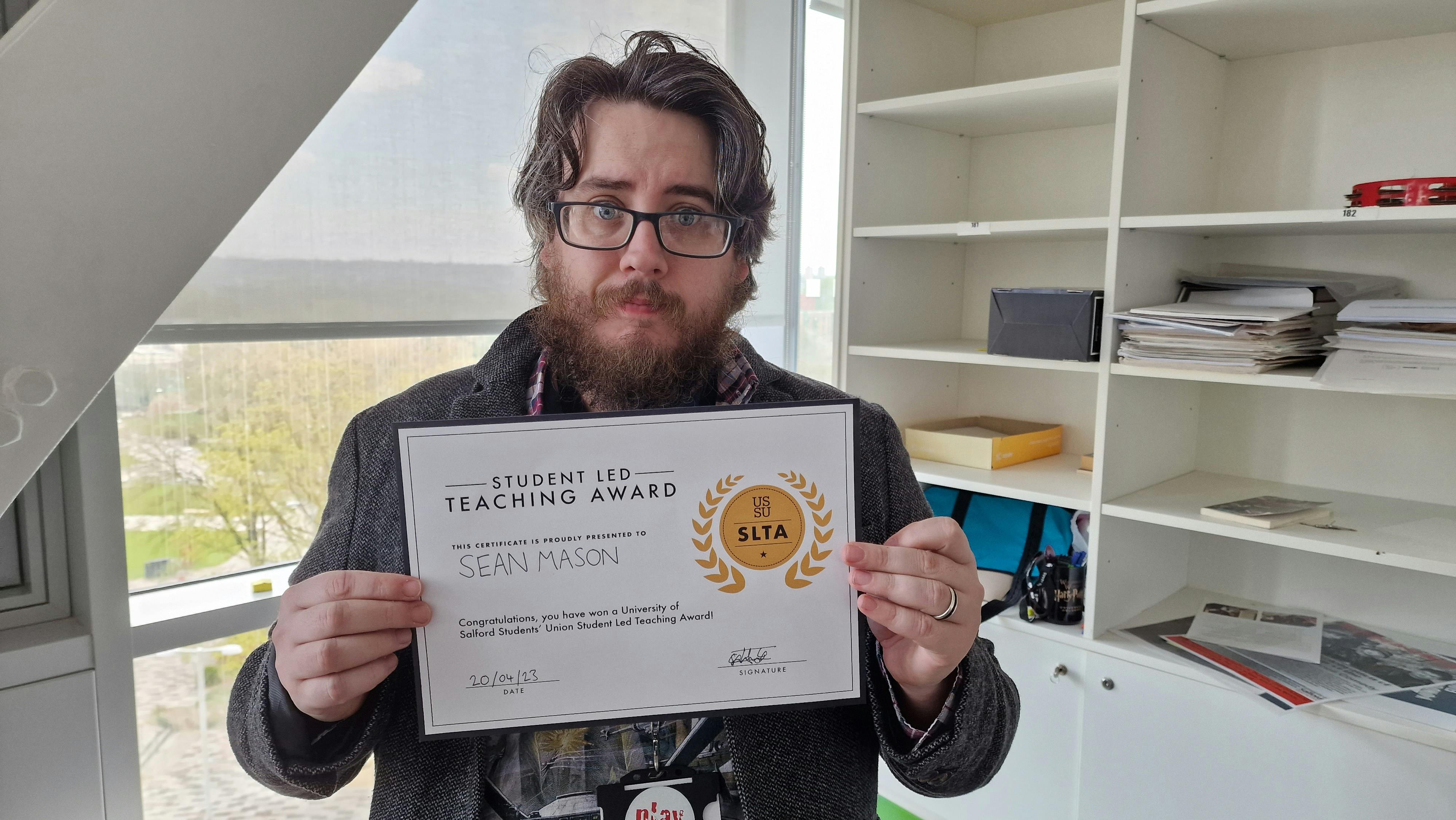
Sean Mason this month was awarded the Student Led Teaching Award for Equality and Diversity. Equality & Diversity: for a lecturer educating & shaping the future generation, diversifying content, and making classes accessible to all.
Sean had this to say (once he got over being surprised in his lesson today).
“I was delighted and honoured to receive this award, as well as very humbled, what with the quality of teaching staff here at Salford.
The fact that this is student nominated award makes it even more special. Thank you to whoever nominated me.”
Should you want to nominate a tutor in the future for an award, Head to this link: https://www.salfordstudents.com/slta
Almost Famous’s Production of A Doll’s House Declared ‘Outstanding’ by Keen Audience Members!
By Robyn Misha, with help from Bella Francis
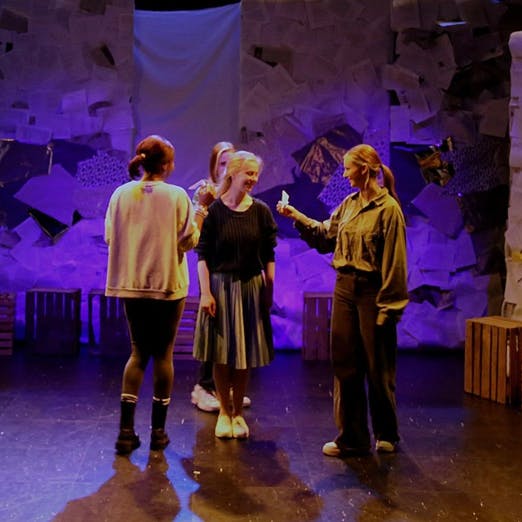
On the 19th-21st January, Salford University’s own Almost Famous Theatre Company brought to stage their performance of Henrik Ibsen’s A Doll’s House. I had the honour of watching their Friday night performance of this show and it was nothing less than spectacular. The first thing I noticed was the beautifully crafted stage. It had a very unique touch to it that made it seem delicate and fragile, and I thought that was very fitting for this play as something that may seem weak was sturdy and withstood even the hardest of blows, like the main character in this show Nora Helmer, portrayed by the wonderful Sophie Stewart.
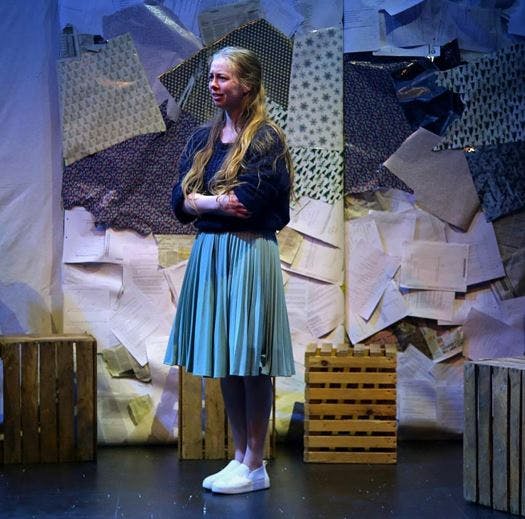
The performances of all of the cast were very well done and, together, they created a truly captivating piece. Each cast member gave it their all and I felt they managed to truly encapsulate their characters and bring them to life as the writer intended. The use of the chorus in the play tied it together very well and added greatly to the themes of the play. The chorus were always present on stage, sometimes taking roles as the Helmer children, but for the most part they observed what was happening on the stage. Co-director Arthur Loades commented on this in an interview saying:
“We decided it had to be an all-female chorus. We thought this showed the women’s right for self-actualisation. They are constantly on stage watching the actions of these men, watching Nora’s struggle. I think a really impactful moment regarding the chorus was in the final scene where Torvald finally sees them and they see him and there is a moment of realisation. Now it’s time for men to do the work. Time for men to do the work to eradicate misogyny.”
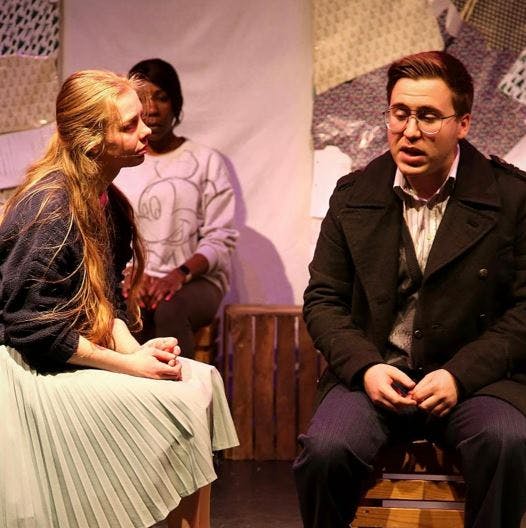
Indeed, the movements and placement of the chorus were very doll-like. Having this wonderful all-female cast pushed to the side and made to sit in silence by the events of the play and just watch it, not being able to interject, was symbolic of the struggle of women in history and how, all too often, women have been silenced. 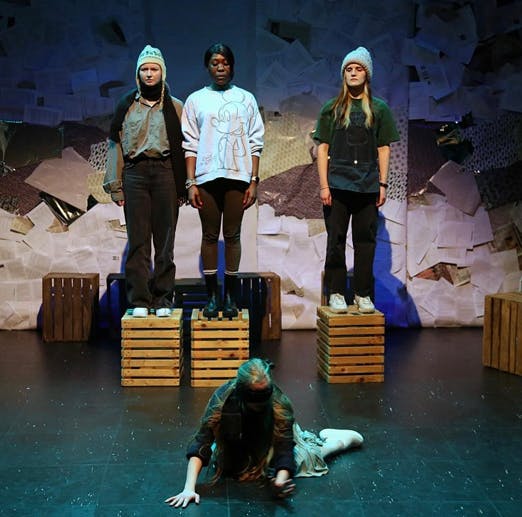
For many people in the cast, crew and audience, the final scene was particularly powerful. This was due to both Sophie’s perfectly emotional and strong performance, and to the symbolism the scene holds. This final scene was both expressive and potent: we have seen the challenges that Nora has faced, and what her and her family and friends have gone through, throughout the play. It was a truly great ending to the play. I felt like this story is both unique and familiar, at the same time. It is unique in the fact that not many women in Nora’s situation would have had the courage to leave an unhappy marriage and pursue happiness, yet the narrative feels familiar as this story is one that keeps continuing to get repeated, almost 150 years after the play was written.
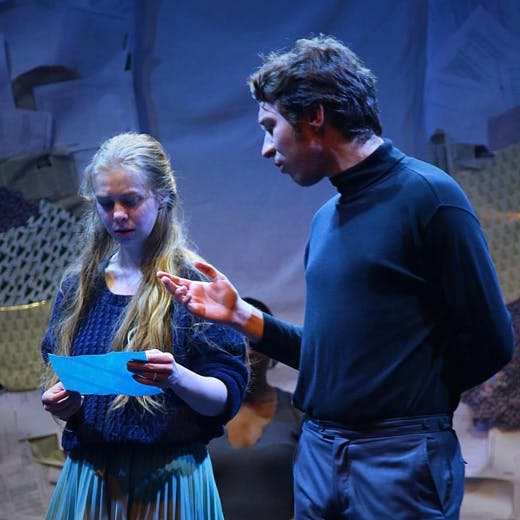
Holly Royce, co-director alongside Arthur, said:
“The ending has such a soft spot in my heart because it’s such a feminist play, and as a woman I wanted to really drive and hone it in that even though this play was written in 1879 these ideas of men having autonomy over women and what women do is still prevalent to this day, so I love the way we did the final scene. I love what we did with the chorus as well. Having those women on stage at all times, I thought was really powerful.”
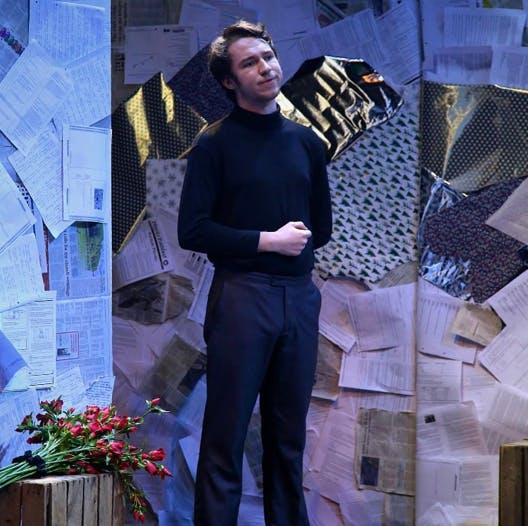
When asked about the importance and relevance of the message of the play in modern society Sophie Stewart, who played Nora in this adaptation said “Oh absolutely [it is relevant]. It’s a message about, if you’re being oppressed, if you’re not comfortable in a situation, get out of there. If you’re not comfortable, respect yourself, respect your boundaries, and leave if you’re not comfortable. And that’s not just for women, that’s for everyone, which is just a really lovely message and it’s absolutely relevant today.”
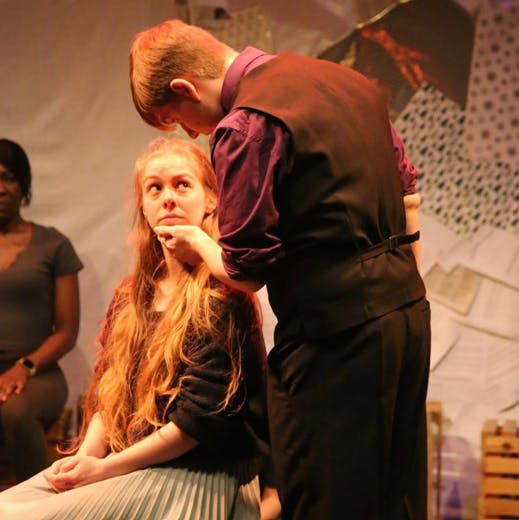
I think this is a very important message for the audience to take from this performance. We should also allow it to empower us to challenge those who are doing wrong and to fight for freedom and happiness. Many people are still not free and are somewhat powerless in the society we live in today. The feminist movement supports the freedom and happiness and equality of all.
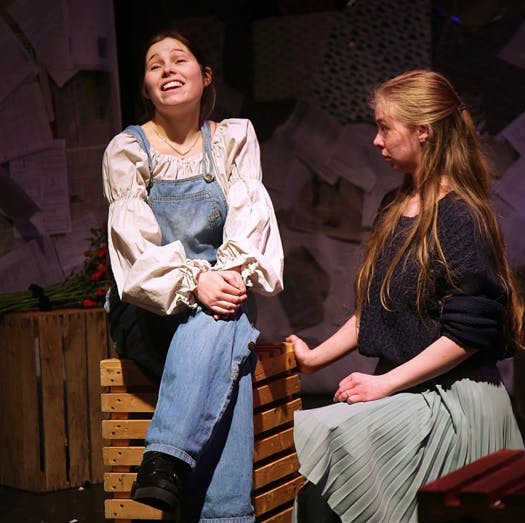
Overall, A Doll’s House was an amazing play to watch, and I wish I could watch it again! All of the cast and crew should be incredibly proud of themselves, as this run of A Doll’s House was an impressive, polished piece of theatre that will live long in my memory.
I can’t wait to see what Almost Famous Theatre Company do next year!

GREATER MANCHESTER THEATRE HIGHLIGHTS: SEMESTER 2
By Dr. Stephen M Hornby
The Lowry
The Lowry is the major arts complex in Salford, with a large main stage (The Lyric), a second theatre (The Quays), a studio and an art gallery. This season includes Athol Fugard’s famous play The Island, a rich, boisterous, funny, moving piece of theatre presented by the award-winning Elysium Theatre from 14th-16th March. Later in the season, from 25-29th April, the world-renowned international touring company Complicité presents a new work for the theatre, Drive Your Plow Over the Bones of the Dead, directed by Simon McBurney.
https://thelowry.com/whats-on/genres/drama/
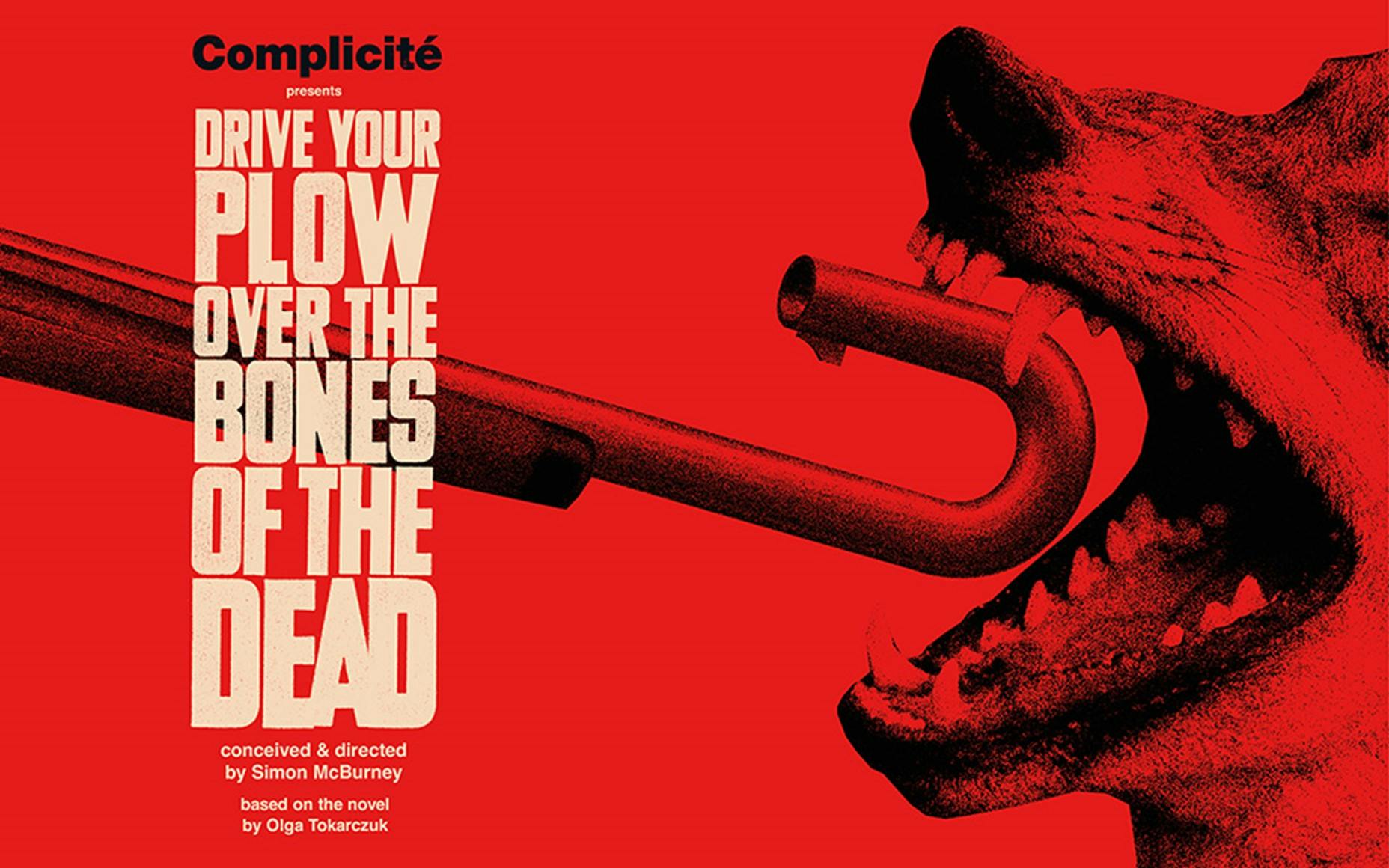
Royal Exchange
Manchester’s leading producing house and home of the prestigious Bruntwood Prize for playwriting. Their programme includes from 24thMarch-29th April a Pulitzer Prize winning classic, Cat on a Hot Tin Roof, the turbulent and brutal comic drama from legendary playwright Tennessee Williams. It is directed by the Royal Exchange Theatre’s Joint Artistic Director Roy Alexander Weise.
What’s On & Tickets | Royal Exchange Theatre
Hope Mill Theatre
The most successful fringe venue in Manchester, often mentioned in The Stage. They specialise in musicals but have a varied programme, including from 25th April-10th May Vignettes which brings together six local female writers, some emerging, some established, to write short plays inspired by whatever they choose.
Bolton Octagon
The Octagon has emerged from a massive rebuilding programme. They offer some interesting writing workshops and a full, live programme including The Time Machine which is a fast-paced, wise-cracking retelling of the novel by H.G Wells adapted by award-winning Original Theatre, the team behind the smash hit comedy The Hound of the Baskervilles. The show runs 12-22 April.
https://octagonbolton.co.uk/whats-on/
Contact
Contact is a local centre for under-30 talent development with their acclaimed Young Company and most of the operating and creative team being young adults. This season’s programme includes This Town a modern-day epic narrative poem, performed and written by exciting new talent Rory Aaron (BBC New Creatives, Southbank Poetry Collective).
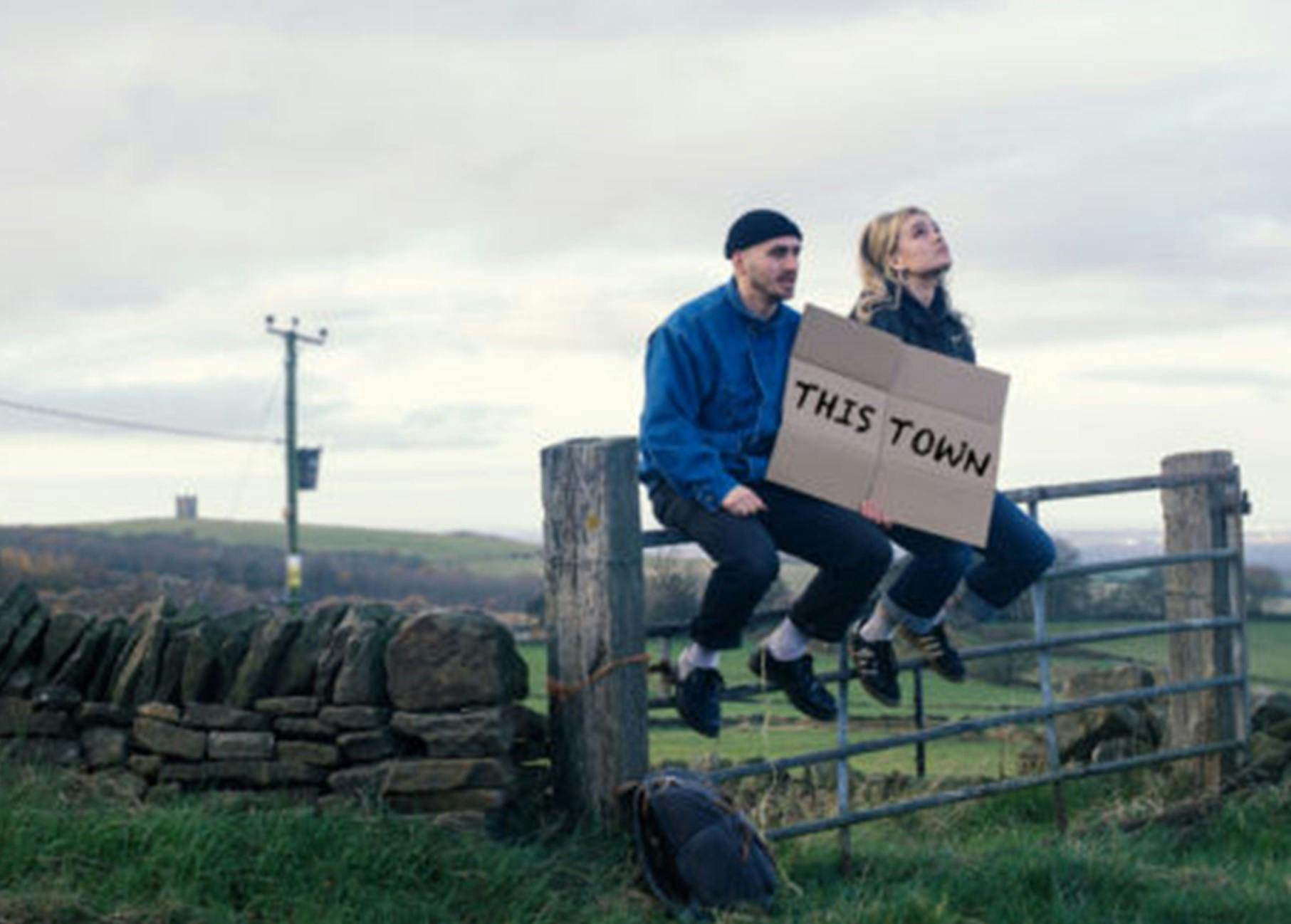
53Two
A leading Fringe venue with a good size studio space, a great bar and a varied programme of comedy, drama and quiz nites. Red Brick are bringing another Bricks night of new talent to the stage from 24th March to 1st April (with £2 tickets for the unwaged). Dynamic, exciting, brave and unseen these six shorts have been selected from a raft of submissions and placed under the gaze of Greater Manchester’s finest, most talented directors.
The Totally Improvised Musical
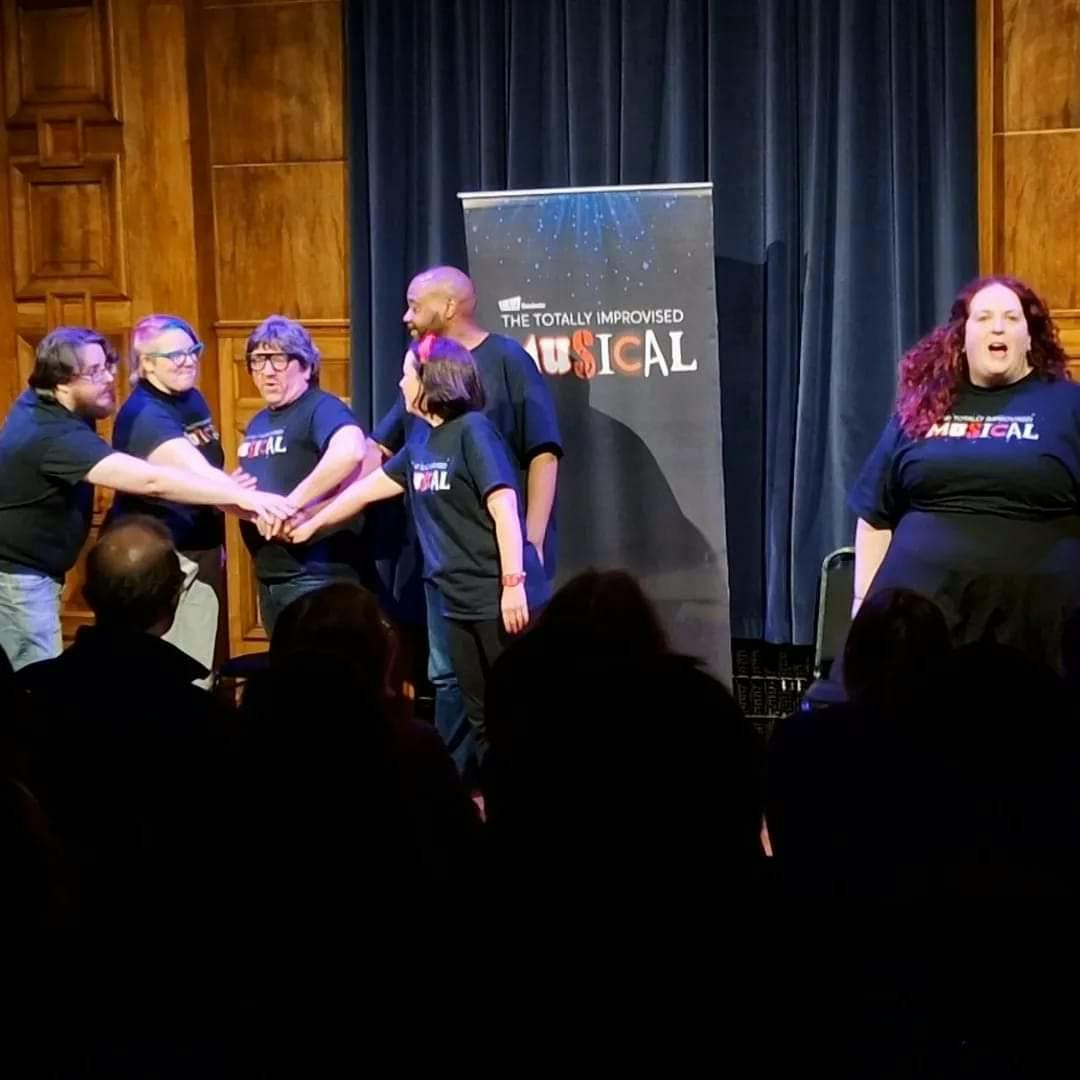
My Top Pick
It’s a bit of a thin season out there, so just one top pick: Complicité’s Drive Your Plow Over the Bones of the Dead. Please be aware that all these shows may have adult content and each venues webpage listings should be consulted for any content warnings.

Graduate Scholarship Programme
By Niki Woods
The Graduate Scholarship Programme will allow graduates from performance disciplines money, time, and resources to experiment and take risks with their creative practice within a supportive framework.
The programme is designed to provide graduates with an opportunity to develop their skills and experience, and includes an award of £3000, practice space in the New Adelphi building, a showcase of a final project, or work in progress, in a New Adelphi Theatre space.
WHAT WE ARE LOOKING FOR
Through the generosity of our donors, we can fund self-motivated applicants who will commit to the programme for the next academic year (on a flexible part-time basis). Applicants are not expected to have a fixed plan as to what they would do during the programme but must demonstrate ideas and ambitions in their chosen field, as well as the commitment and drive to making them happen.
This is a competitive process, so please only apply if you can commit to the programme and you’re working in broad performance areas, such as:
- Theatre – live, playwriting, experimental forms, dance/movement
- Creative Tech/Media Practice – audio/visual
- Comedy
- Spoken Word/Poetry
- Producing/Marketing/Audience Development/Tech Support
You should want to develop an idea over the next academic year. We may talk to your Programme Leader about your engagement over the course of your degree, and we may look at final year project marks to help us select the most appropriate applicants.
Applications will open soon. Shortlisting will take place a week or so after the deadline, with interviews to follow a couple of weeks after that.
Details will be posted on your Course Blackboard Year Pages. Keep an eye on your emails!
Tate Frostick- International Exchange
By Brainne Edge
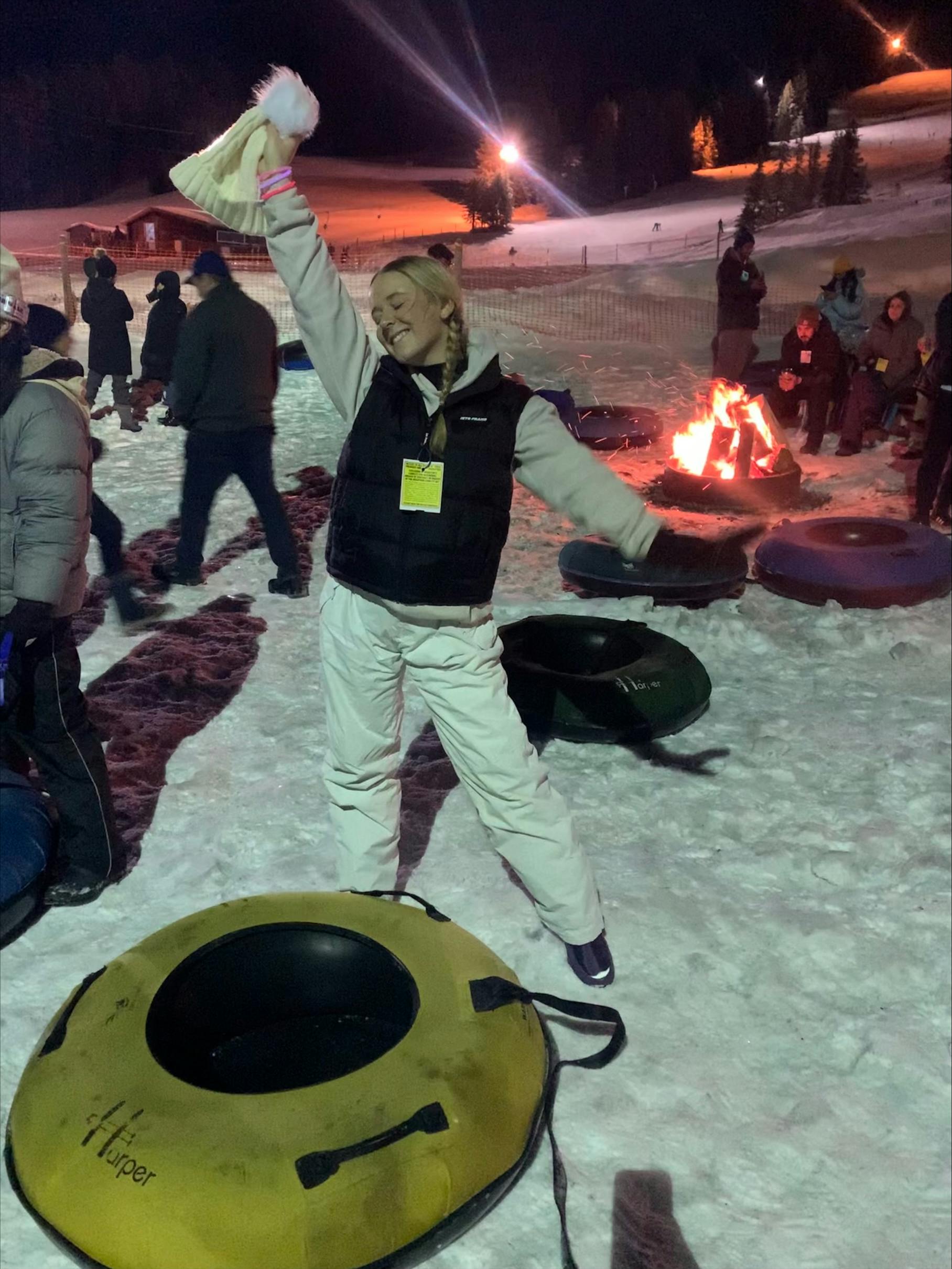
Brainne Edge is the Performance Lead for International Studies at the University of Salford. There are currently 3 performance students on exchange to Canada, and Brainne caught up with one of them Tate Frostick, to find out more about how the exchange was going.
Brainne: Hi Tate, I’d love you to tell us a bit more about your semester two student exchange to Canada. 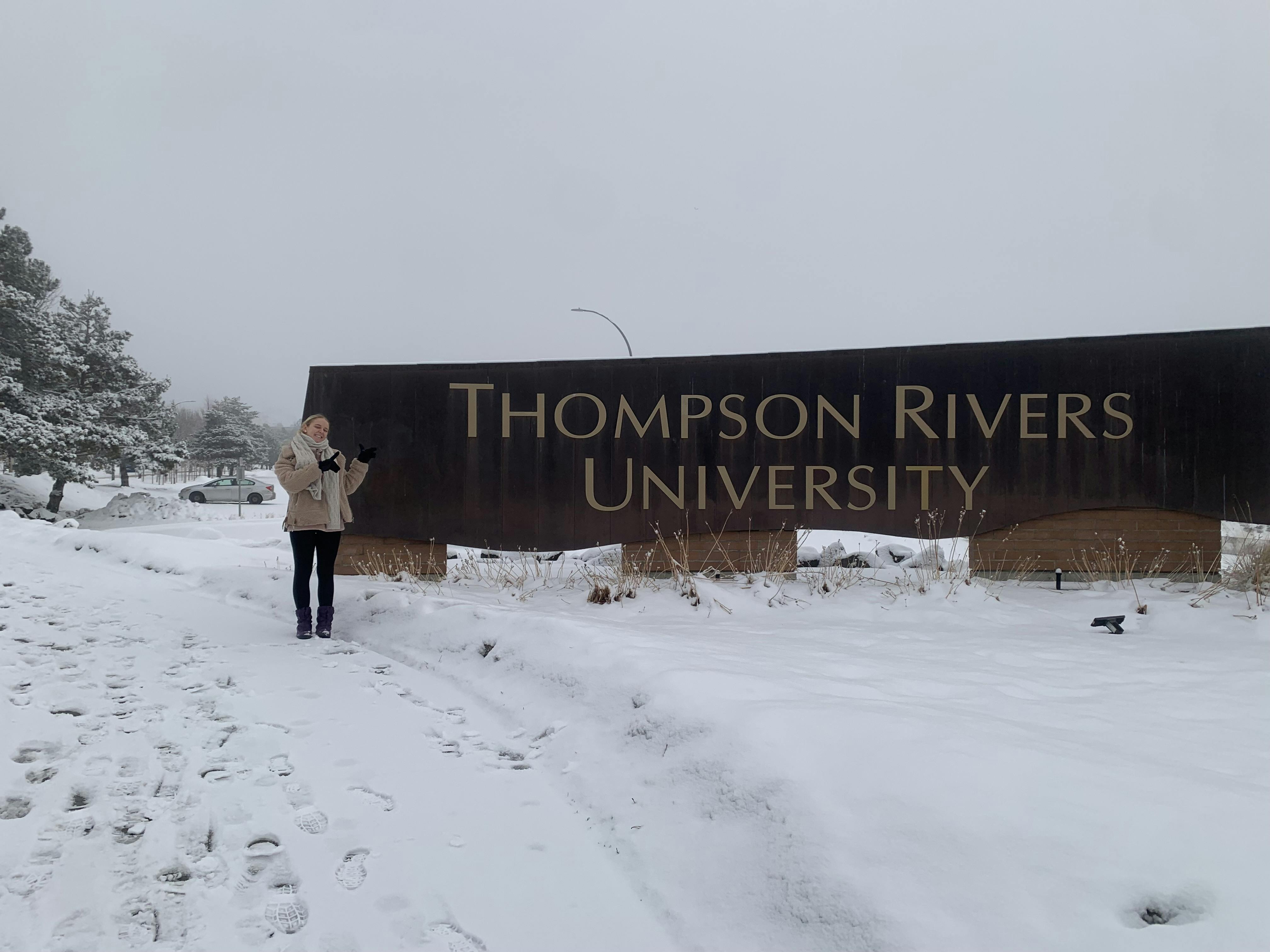
Tate: So, Thompson Rivers, where I am, in general is very small. It’s kind of like villages and the University is known for its international population, as it’s so small it can only run because of the international students. There are posters around campus which tell you that it’s been like a 40 year programme of international students, which is crazy. The university spoils us, they put on so many events. We did performances recently in a big celebration for the programme which was amazing They really keep going an extra mile to make the international students feel welcome and do events like even a couple of weeks ago, they did a campfire on campus in the evening with hot dogs and hot chocolates and stuff like that.
Brainne: Well that sounds like a lot of fun, so what sort of differences are you finding between Salford and Thompson Rivers?
Tate: Work wise and class wise. You get a lot more exams and assessments here. They have midterms and end of year finals, which we don’t particularly have at home, but they do offer a lot of support like. I know that my writing here has improved massively because my first written grade I got a C minus, but I just got one back which I got a B plus in the writing side! Then another one of my exams, I got 100 on!
Brainne: Obviously the grading structure is a little different to ours, haha, but that’s great! OK, so tell us a little bit about the the living experience.
Tate: Yes. So I am in a ‘home stay’ and I am with my host mum Natasha and she’s lived here for 20 years and then I’m here with Isa, my roommate. She’s from Peru and she’s here for her four year degree.
She came in September, so when I arrived the next day she took me on the bus route, showed me everywhere to go. We have become like best friends, and I definitely think ‘home stay’ is so much better than living on campus. Like for my New Year’s Day, my host mum took me to a frozen lake and we had a campfire on a frozen lake with hot chocolates and everything like that. Then we went snowshoeing, which is like where you walk on top of, like deep snow and it’s crazy. Isa says she wants to do an exchange while she’s here now! And she’s thinking about doing it to Salford so she can come see me. So it’s great.
Brainne: What a very Canadian experience you’ve had!
Tate: Completely!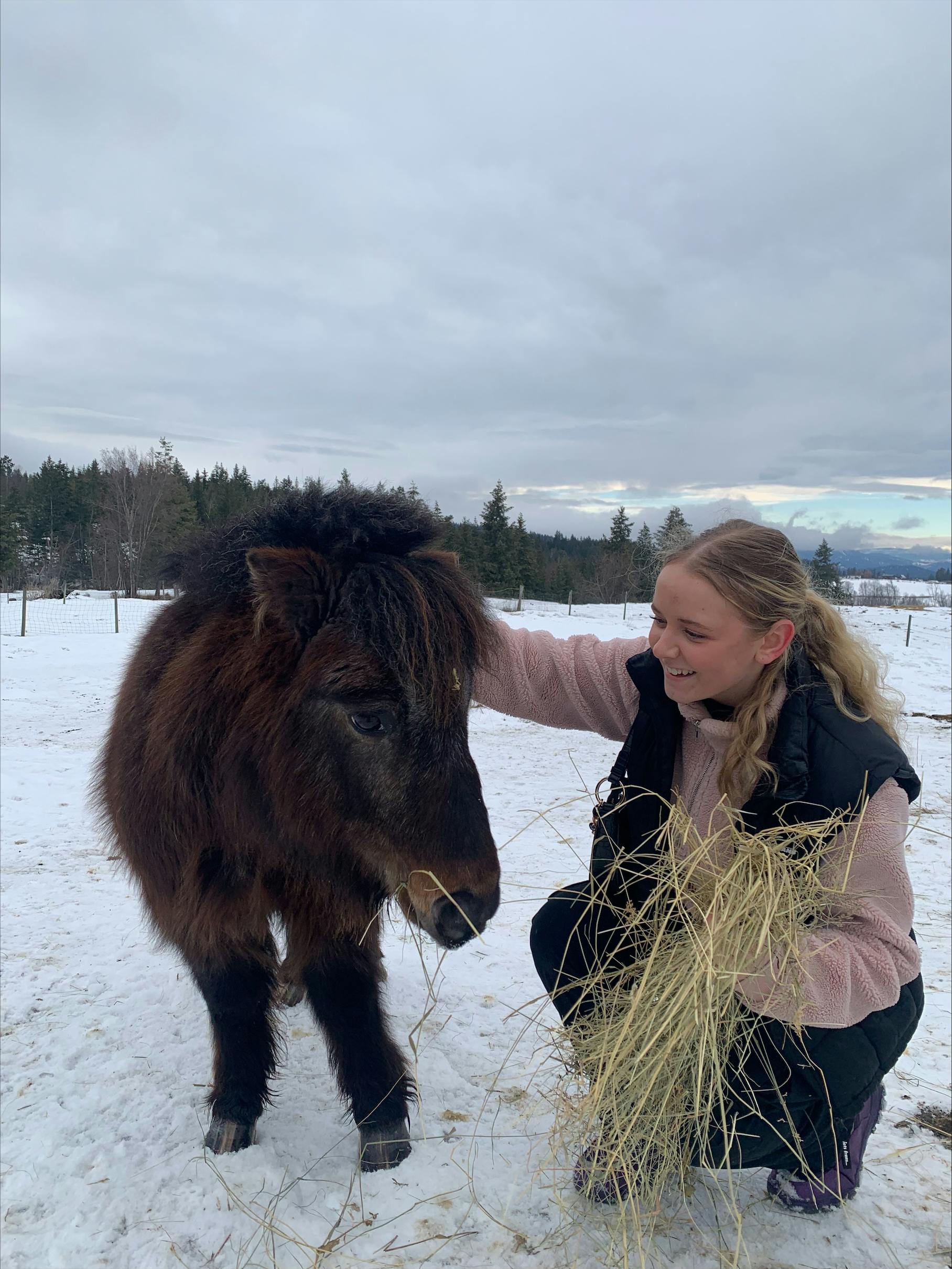
Brainne: Do you have any advice to anyone who’s considering doing an international exchange?
Tate: Definitely persevere. Because it can be such a long process, I know it came up in my memories on my phone a couple weeks ago that it was like a year ago today that I applied.
I know a lot of my friends that I was living with at the time applied and then didn’t’ persist with the application process, didn’t go through with it. And now I’m here, they are so jealous. They are completely and utterly jealous. When I was applying, I wanted to, not because I don’t like England, but I wanted to choose somewhere far away as possible because I think I could go to Spain, France, anywhere like that whenever I wanted, so definitely choose a country that you probably have not really any idea about, so you can do your research. You can learn a lot more and see a lot more. And I know for me it was so big because I’ve never done an international flight, never mind by myself and I don’t like flying. So that in itself was a big thing and now I’m booking till I go to Seattle and travel and this has made me want to travel to Australia for a year after my degree! So yeah, definitely just choose. I think if you’re going to do something like this, don’t necessarily go for some way and your comfort zone.
Brainne: Thank you Tate, what a wonderful time you’re having, and all the best for the last month of your exchange.
Tate: Thanks, bye.
If you’re interested in International Exchange contact Brainne Edge on b.edge@salford.ac.uk
GUESS THE PERFORMER- ANSWER
Were you right? It was Stephen Hornby and Tim Skelly


